- Excellent driving experience
- Solid feeling and great quality interior
- Entry level engine has more than enough go for most
- Price rise has made it more expensive
- New iDrive isn't as user friendly as old version
- Roadside assistance lacking compared to rivals
Amongst automotive journalists, there are a number of legendary cars that you just have to drive in your career. There’s the Porsche 911, Volkswagen Golf GTI, Mazda MX-5 and, of course, the BMW 3 Series. Why is the 3 Series so iconic? Well, as BMW’s marketing line would have you believe, it’s the ultimate driving machine – but it’s also wrapped up in a practical, well made and premium package. Do the 3 Series’ qualities extend to even a entry-level model? We tested the 2023 BMW 320i to find out.
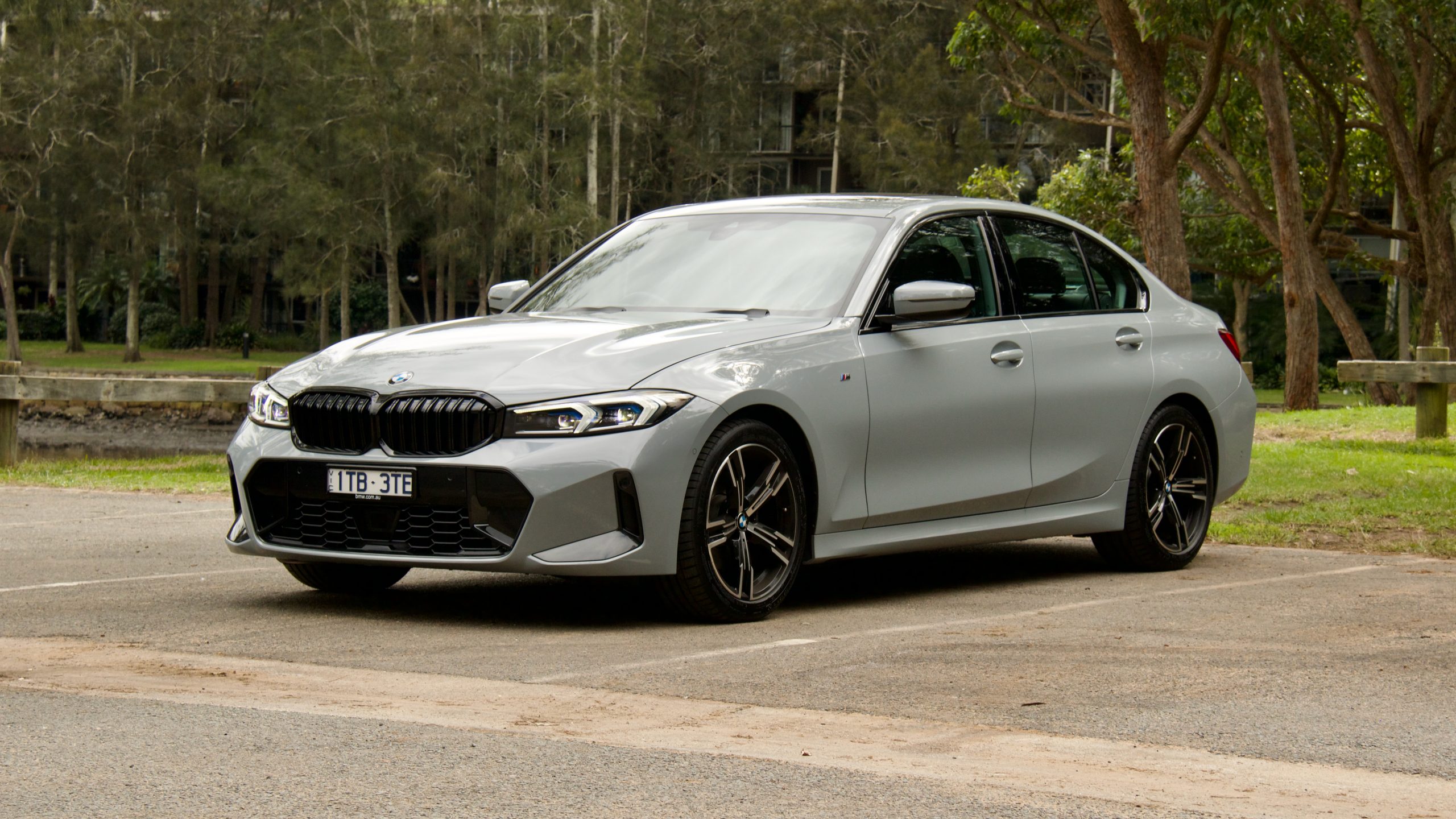
First introduced to the world in 1975, the BMW 3 Series is one of the longest-running new car nameplates on the market. Now in its seventh generation, or ‘G20’ in BMW jargon, the 3 Series or ‘3er’ as it’s affectionately known, is far larger than the original but still drives like you’d expect a 3 Series to – at least, according to BMW. The 3er has a lot of rivals these days, from the traditional Mercedes-Benz C-Class and Audi A4, to cars like the Alfa Romeo Giulia, Jaguar XE, Volvo S60 and Genesis G70 – plus, if you count similarly-sized EVs, the Tesla Model 3, Polestar 2 and Hyundai Ioniq 6 as well.
Price & Equipment: 7.5/10
The 320i entry-point to the 3 Series range in Australia is priced from $78,900 plus on-road costs (or around $86,000 drive away, depending on location). That’s a $5,400 increase on 2022 thanks to the 3er’s mid-life update, if you’re wondering.
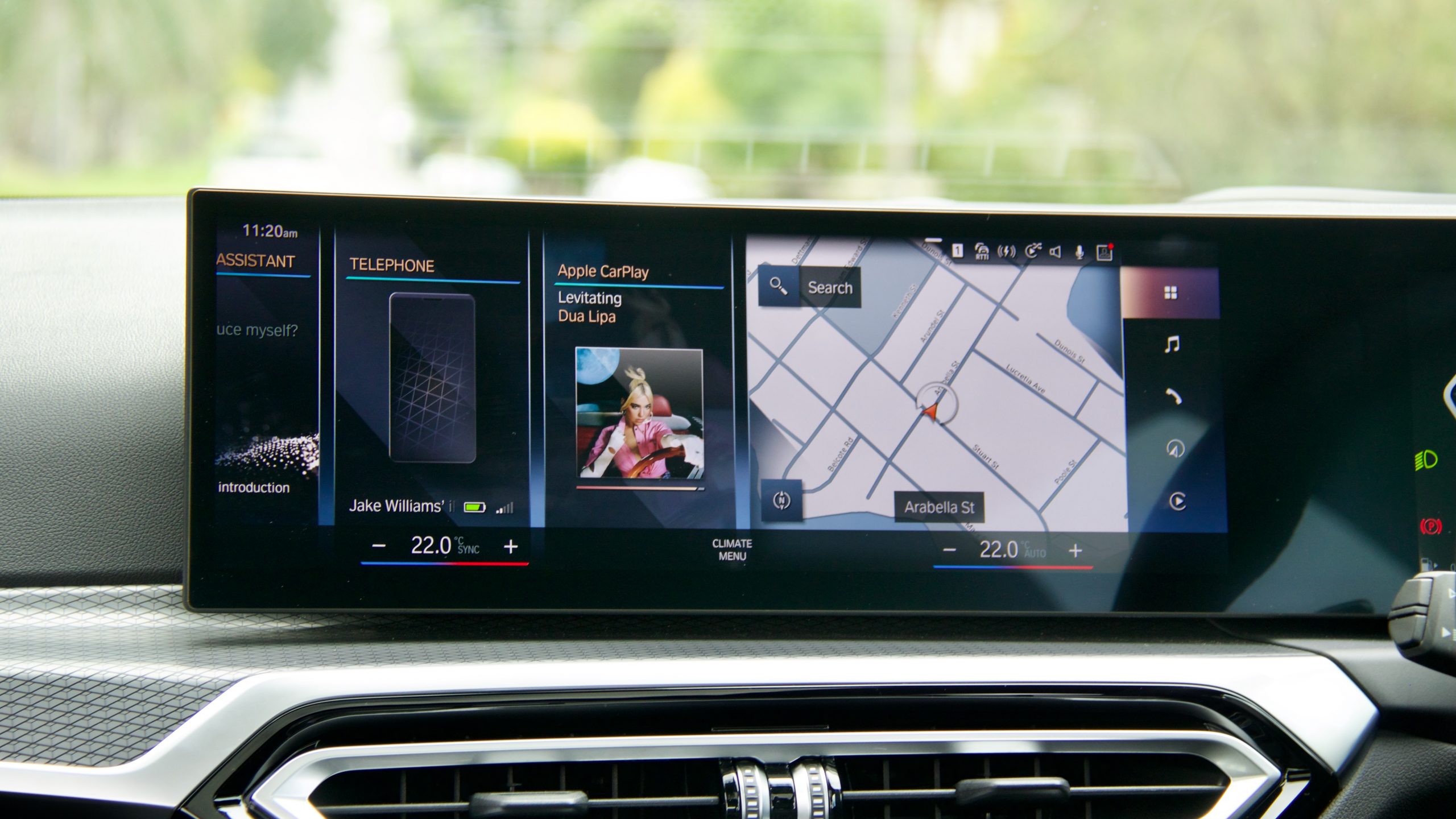
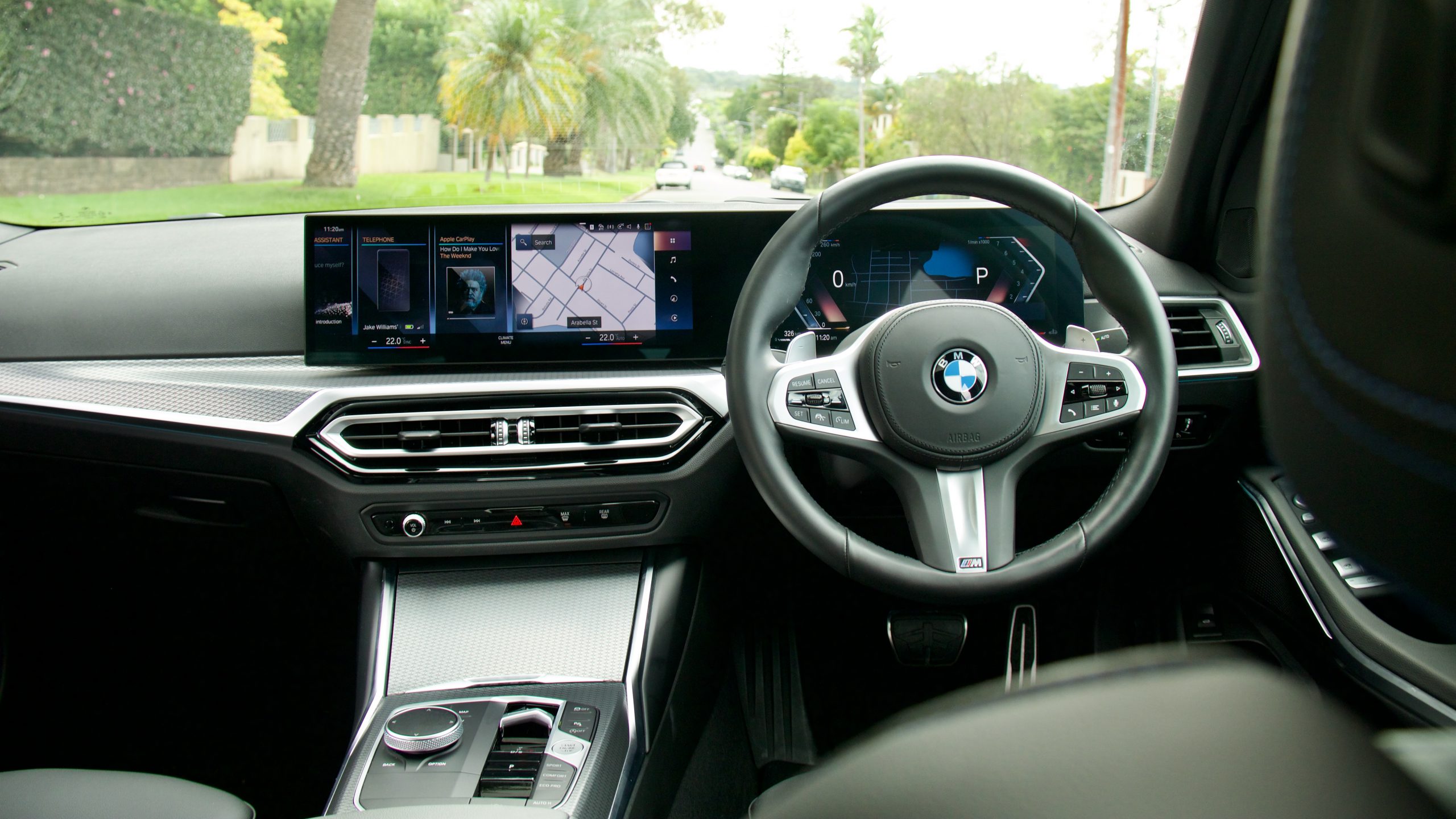
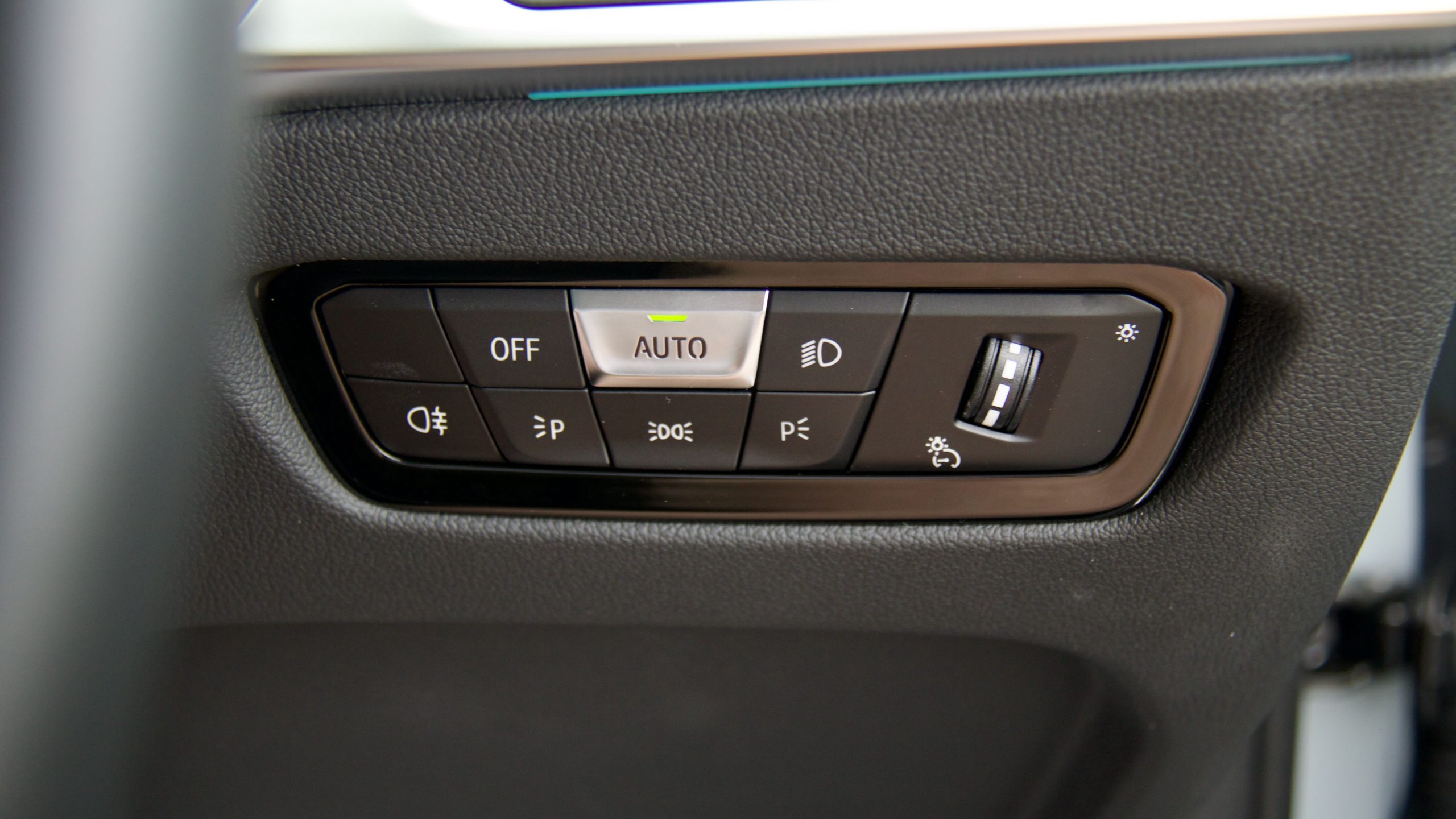
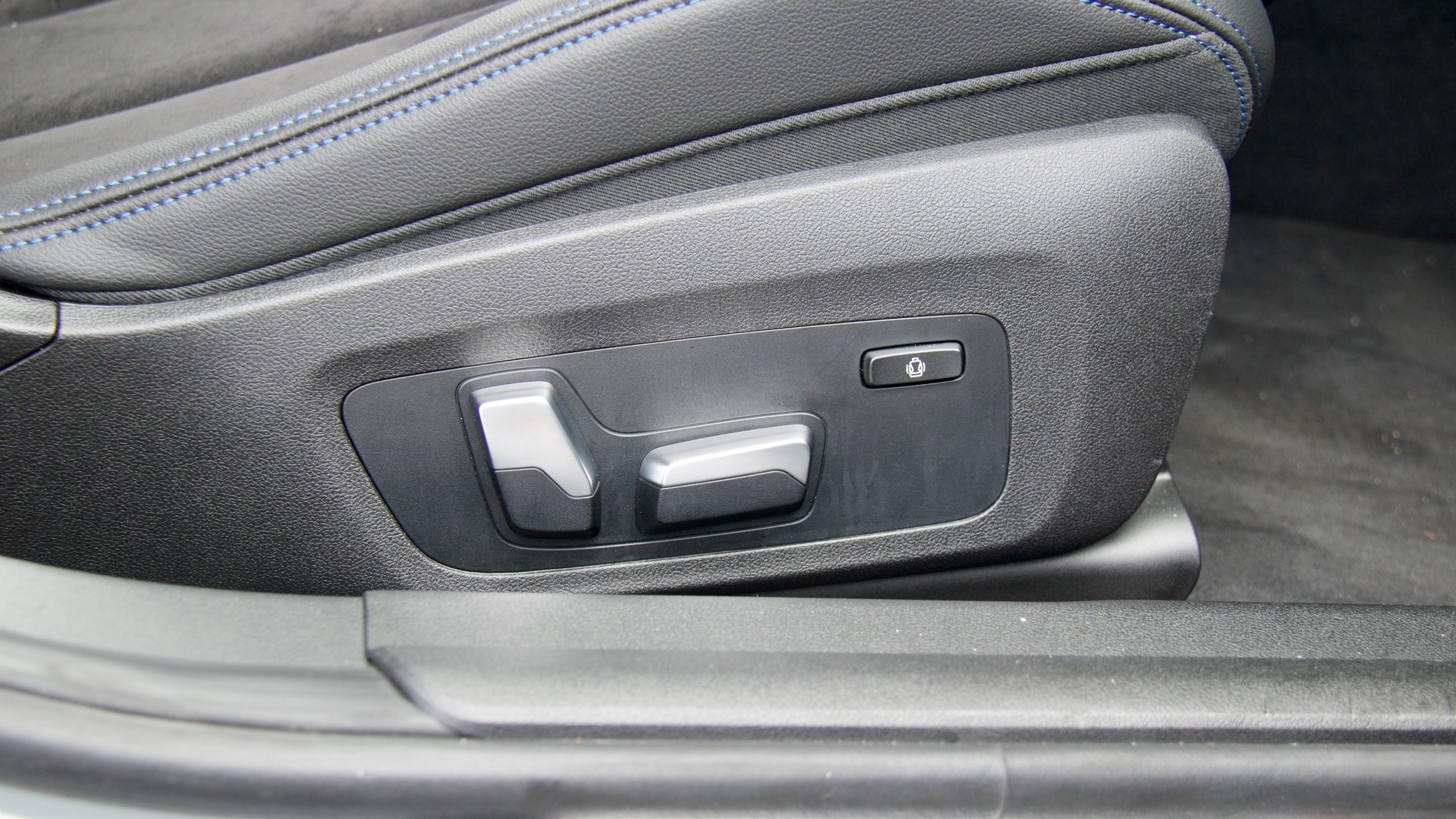
Standard equipment on the 2023 BMW 320i includes 18-inch alloy wheels, automatic dusk- and rain-sensing LED exterior lighting, LED front and rear daytime running lights, auto wipers, the M Sport exterior package, suede and synthetic leather upholstery, front sports seats with electric adjustment, a leather-wrapped steering wheel, keyless entry and start, heated and auto-folding mirrors, tri-zone climate control, a 14.9-inch touchscreen with wireless Apple CarPlay and Android Auto, live services like weather, satellite navigation with live traffic, digital radio, LED ambient lighting, a 12.3-inch digital driver’s display, a wireless phone charger, BMW’s digital key, a 10-speaker sound system and “hey BMW” voice control.
Safety kit includes eight airbags, auto emergency braking (AEB) with pedestrian detection, lane departure warning with lane keep assist, driver attention monitoring, blind-spot monitoring with rear cross-traffic alert, low-speed rear automatic braking, auto high beam, a heads-up display, adaptive cruise control with traffic jam assist, semi-autonomous parking, front and rear parking sensors and a reversing camera. The 320i received a five-star ANCAP safety rating in 2019.
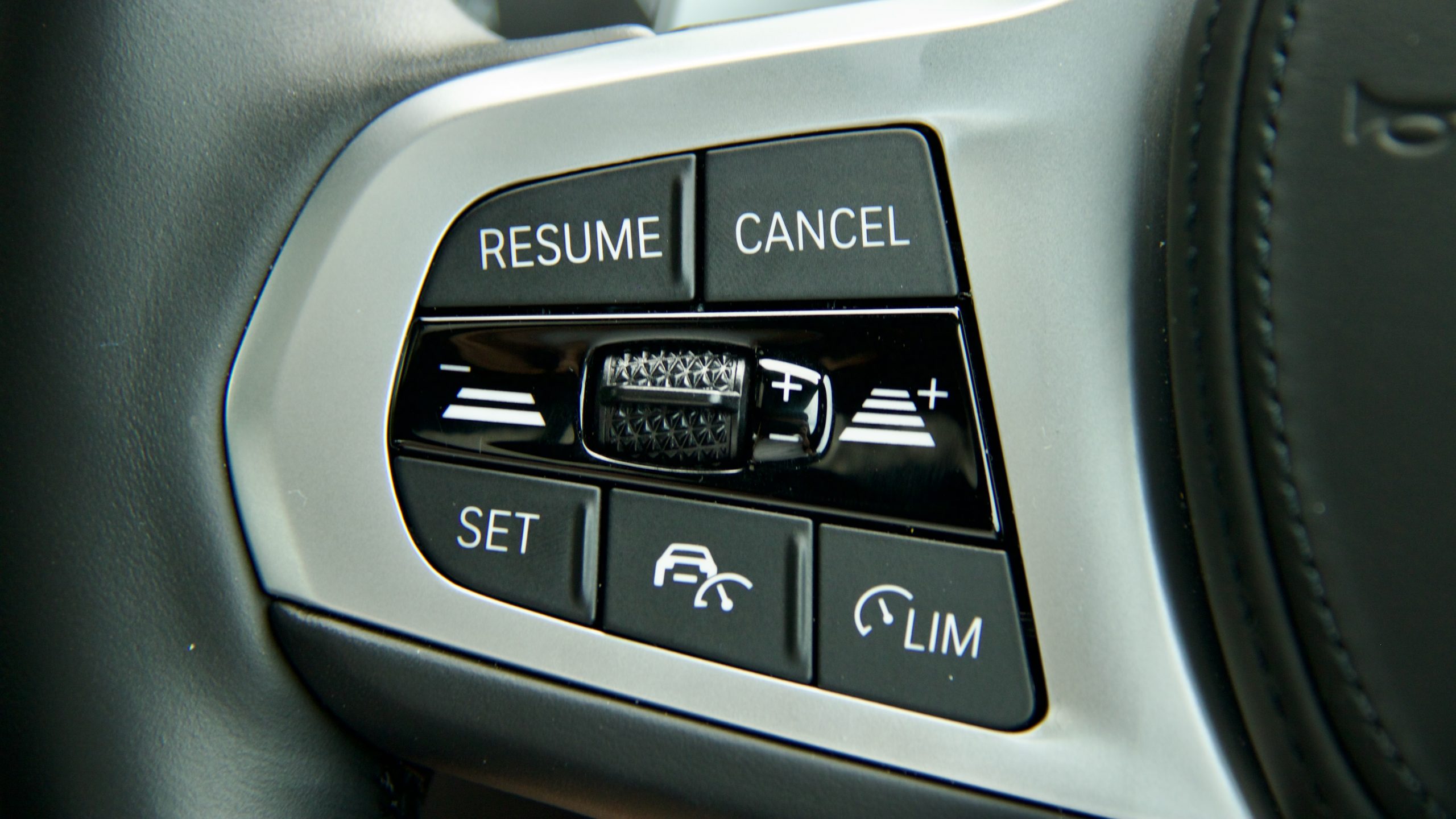
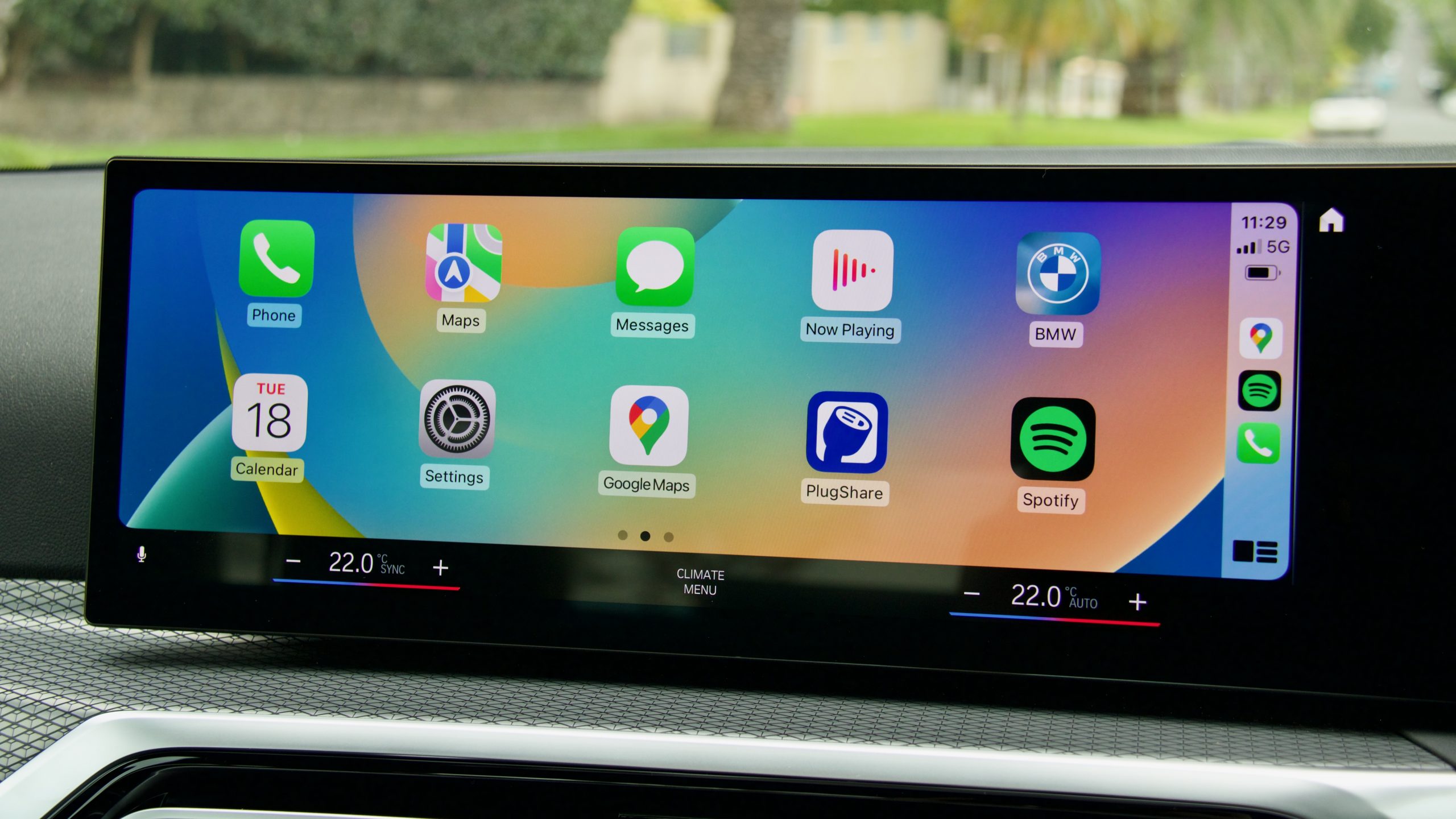
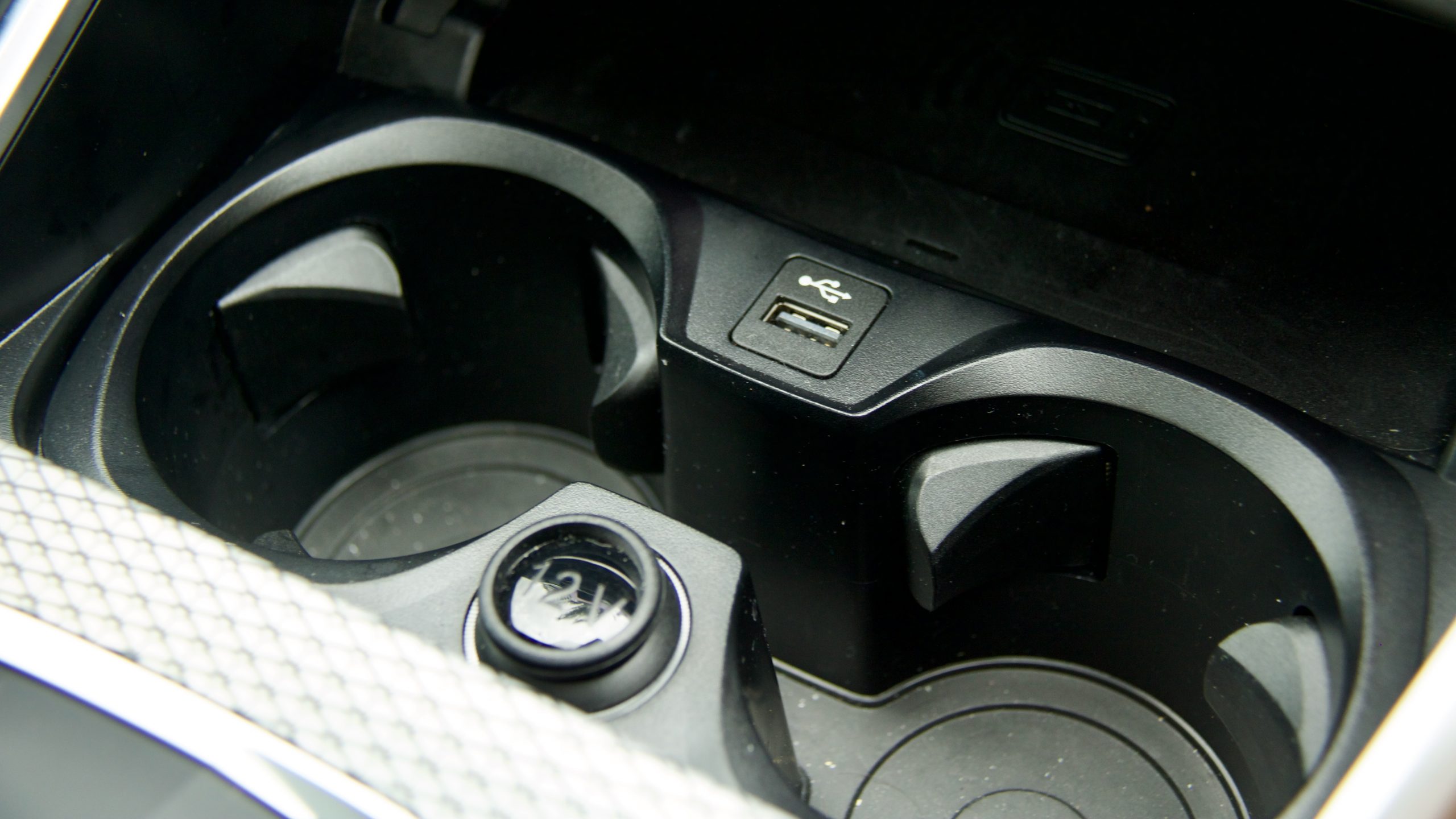
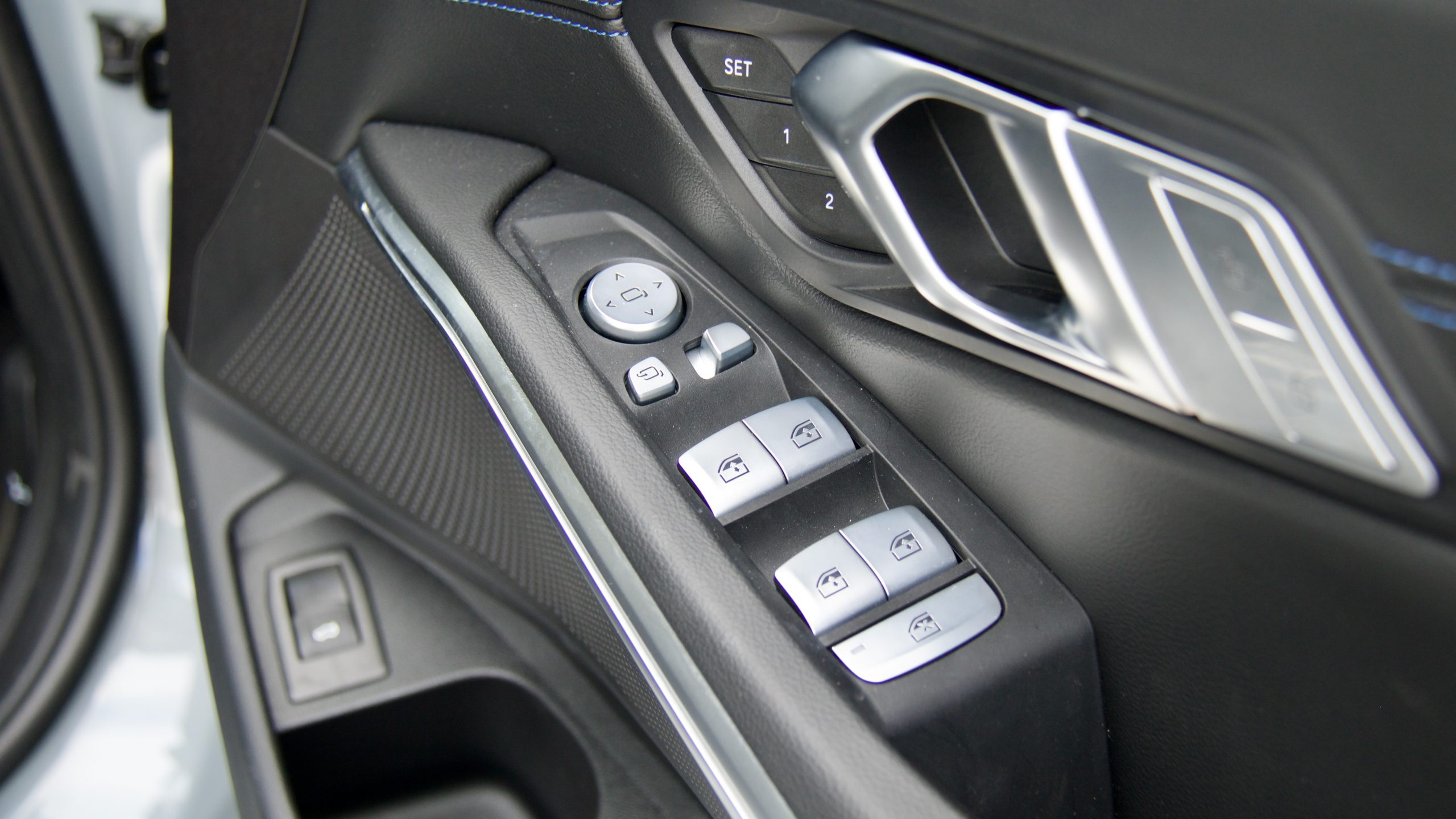
There are a few option packages for the 320i: the $3,077 M Sport Pro Package with gloss black exterior styling trims, a rear lip spoiler and painted brake callipers, the $3,693 Visibility Package with laser headlights with adaptive high beam and a sunroof, the $3,077 Comfort Package with an automatic boot lid, a 16-speaker Harman Kardon sound system, heated front seats, a heated steering wheel and lumbar adjustment for the front seats and the $1,846 Executive Package with tyre pressure monitoring, acoustic glazing, remote start, a 360-degree camera and an inbuilt drive recorder. All up, it’s possible to spend around $106,000 drive away on a 320i.
The only non-cost colour for the 320i is ‘Alpine White’, while ‘Melbourne Red’, ‘Black Sapphire’, ‘M Portimao Blue’, ‘Skyscraper Grey’ and our test car’s ‘M Brooklyn Grey’ cost $1,539 extra, while ‘Dravit Grey’ and ‘Tanzanite Blue’ are $2,961 extra. Black suede/faux leather is standard while black ‘Vernasca’ leather is a $3,077 optional extra. Aluminium or oak wood interior trims are standard, while a carbon fibre trim is a $923 optional extra.
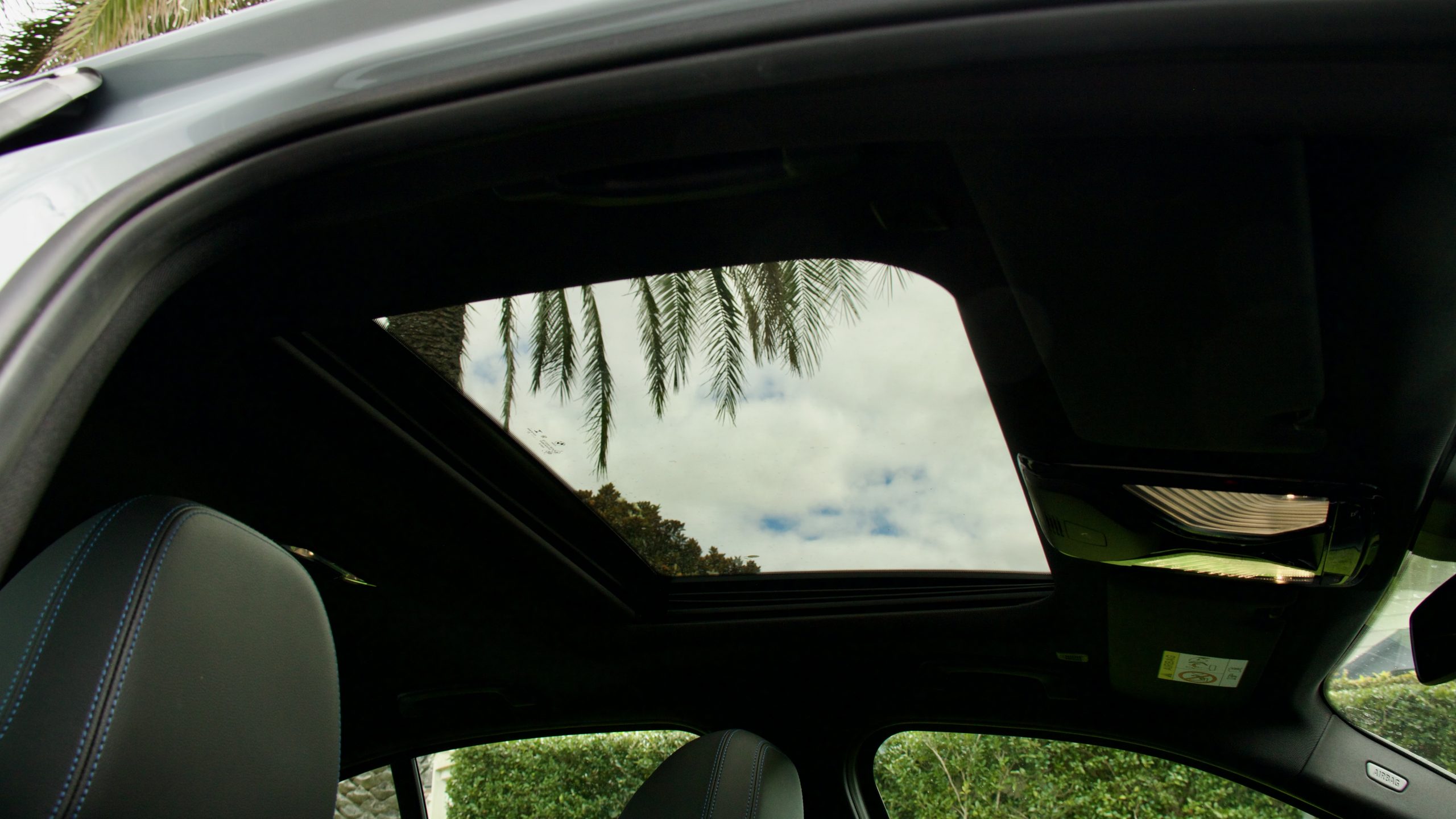
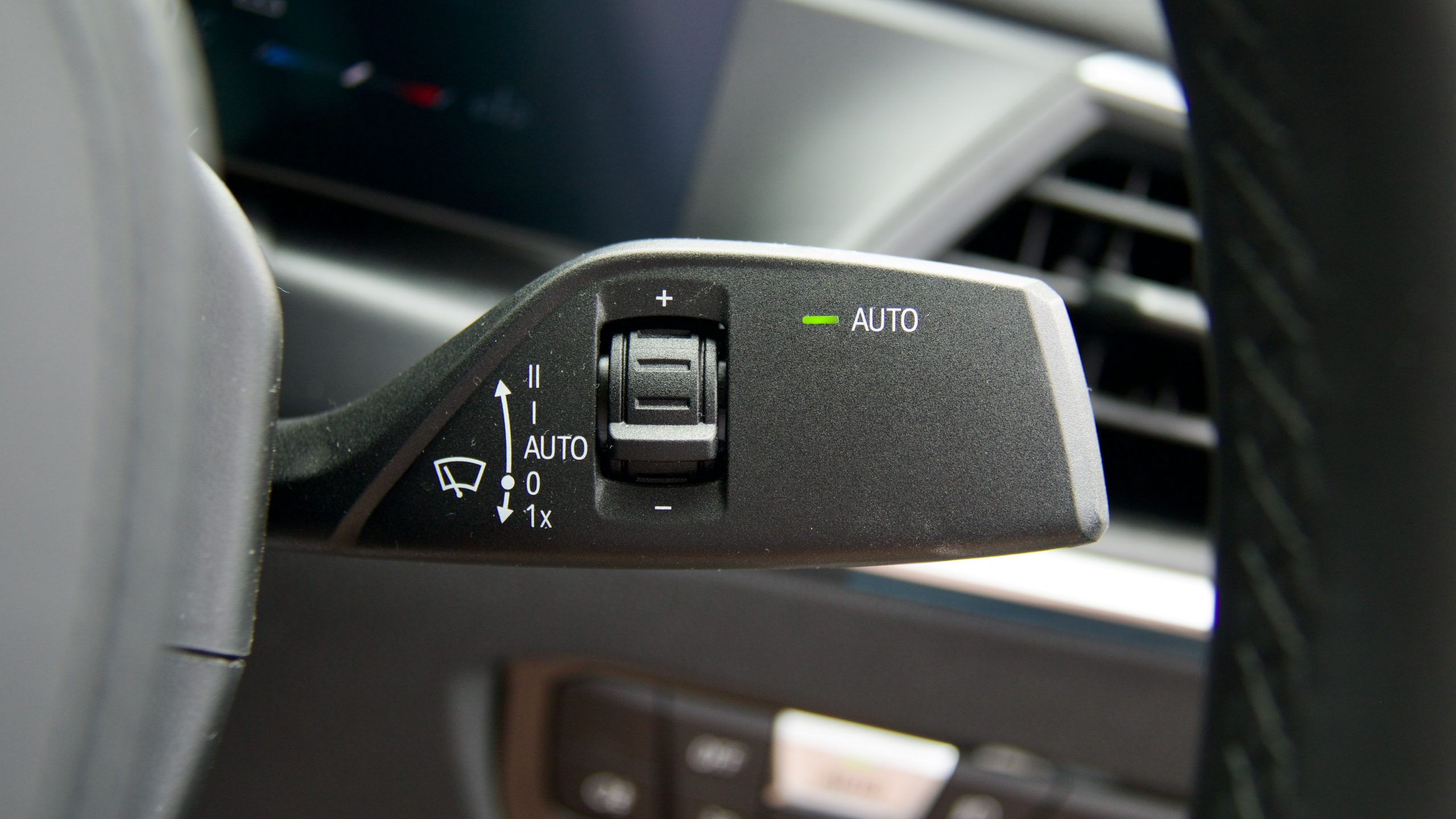
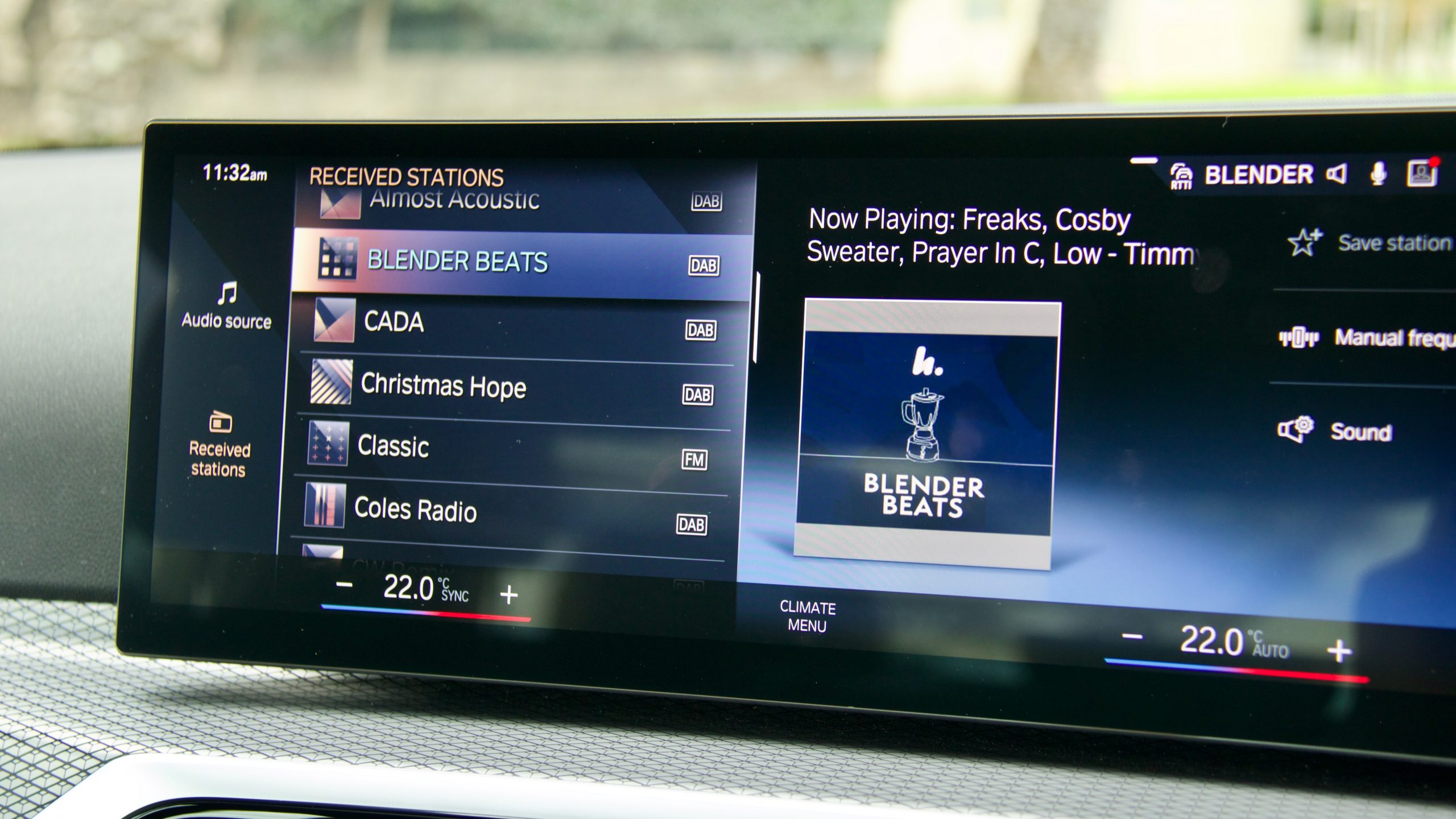
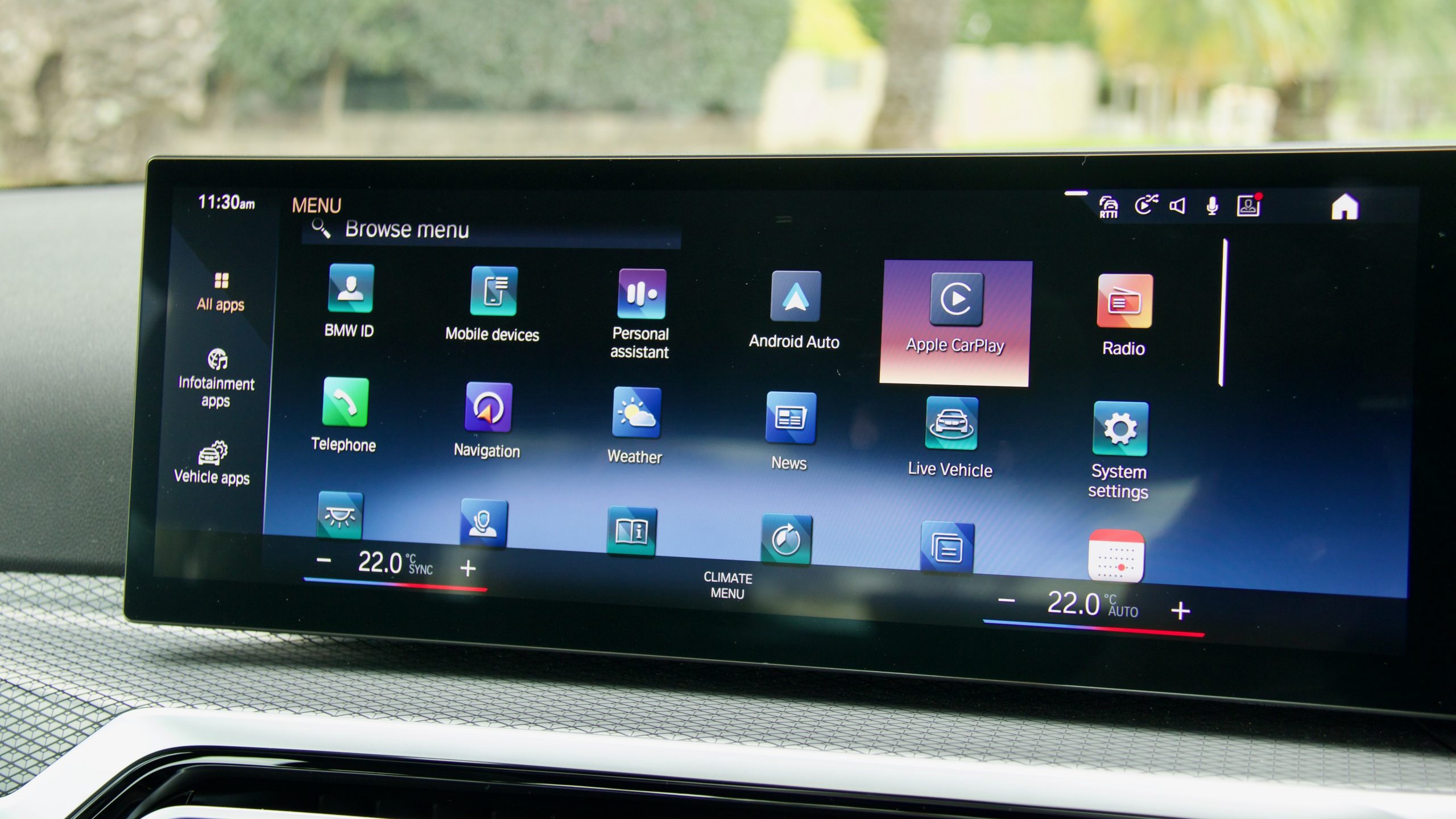
The chief competitors to the 320i are the Mercedes-Benz C200, which is priced from $81,700 plus on-road costs or around $88,000 drive away, and the Audi A4 45 S Line quattro, which is priced from $75,700 plus on-road costs or around $85,000 drive away. All three are broadly similarly equipped, with similar options packages but there’s more difference between them when inspecting closer – for example, the 183kW Audi is actually the upper-spec A4 and competes with the upper-spec 330i ($93,400 +ORC) and C300 ($93,500 +ORC) and the equivalent A4 35 is priced from $66,300 +ORC.
Buyers shopping for better value in the premium mid-sizer segment can look beyond the traditional offerings to cars like the Alfa Romeo Giulia, Genesis G70, Jaguar XE, Volvo S60 and even the Volkswagen Arteon for similar levels of quality, but more equipment and performance. For example, a fully loaded four-cylinder Genesis G70 2.0T costs around $85,000 drive away – not cheap and similar to the BMW, yes, but with a lot more standard equipment. The larger 206kW Volkswagen Arteon 206TSI R-Line is priced from below $80,000 drive away, and that is, again, fully loaded.
Performance & Economy: 8/10
Under the bonnet of the 2023 BMW 320i is a 2.0-litre turbocharged four-cylinder petrol engine that makes 135kW of power (at 6,500rpm) and 300Nm of torque (between 1,350rpm and 4,500rpm). That engine sends its power to the rear wheels only via an eight-speed torque converter automatic transmission. Its claimed power-to-weight ratio is 91.3kW/t – versus 87.1kW/t for the C200 – while its claimed 0-100km/h time is a reasonable 7.4 seconds and it hits a claimed 235km/h top speed.
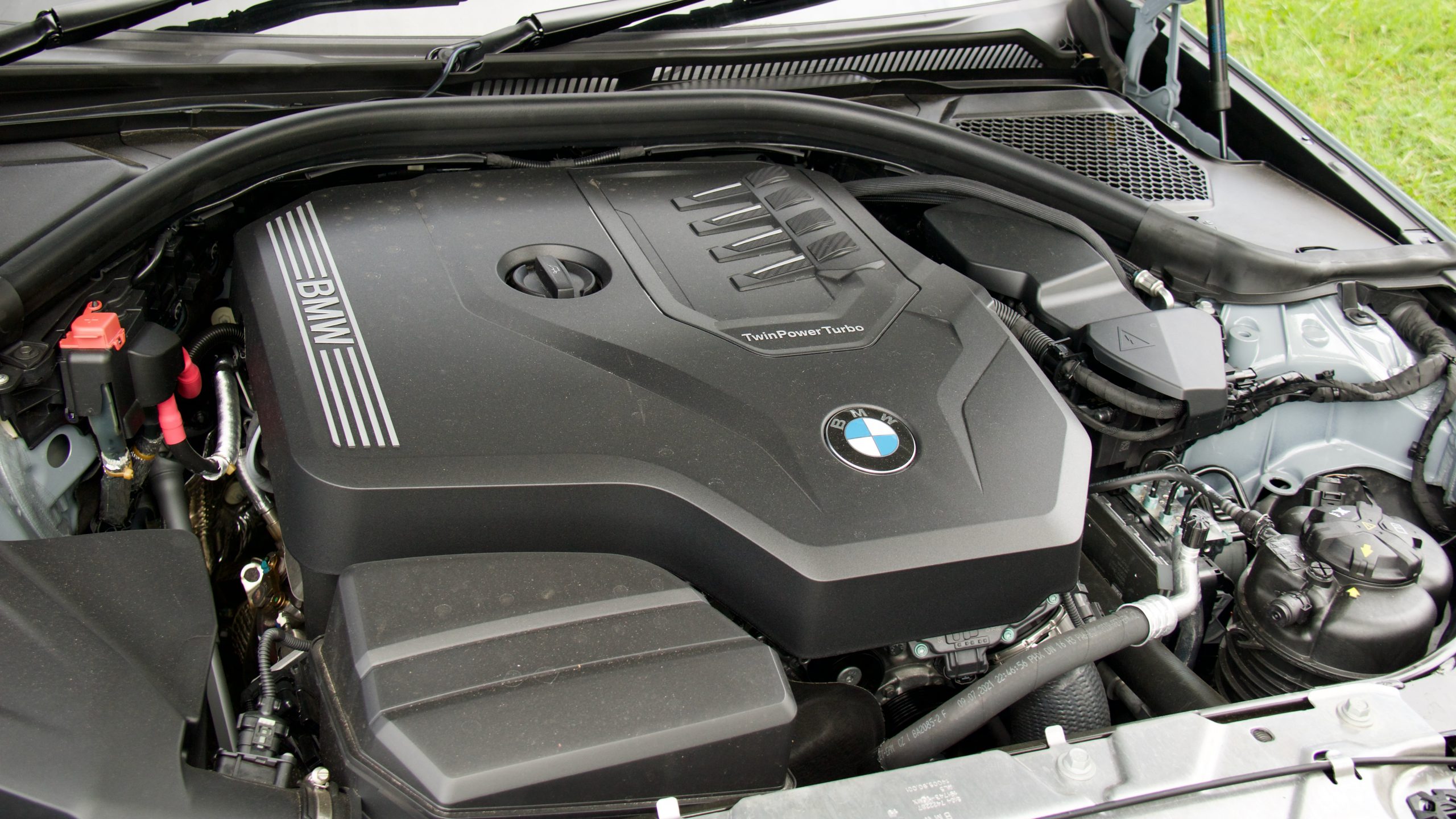
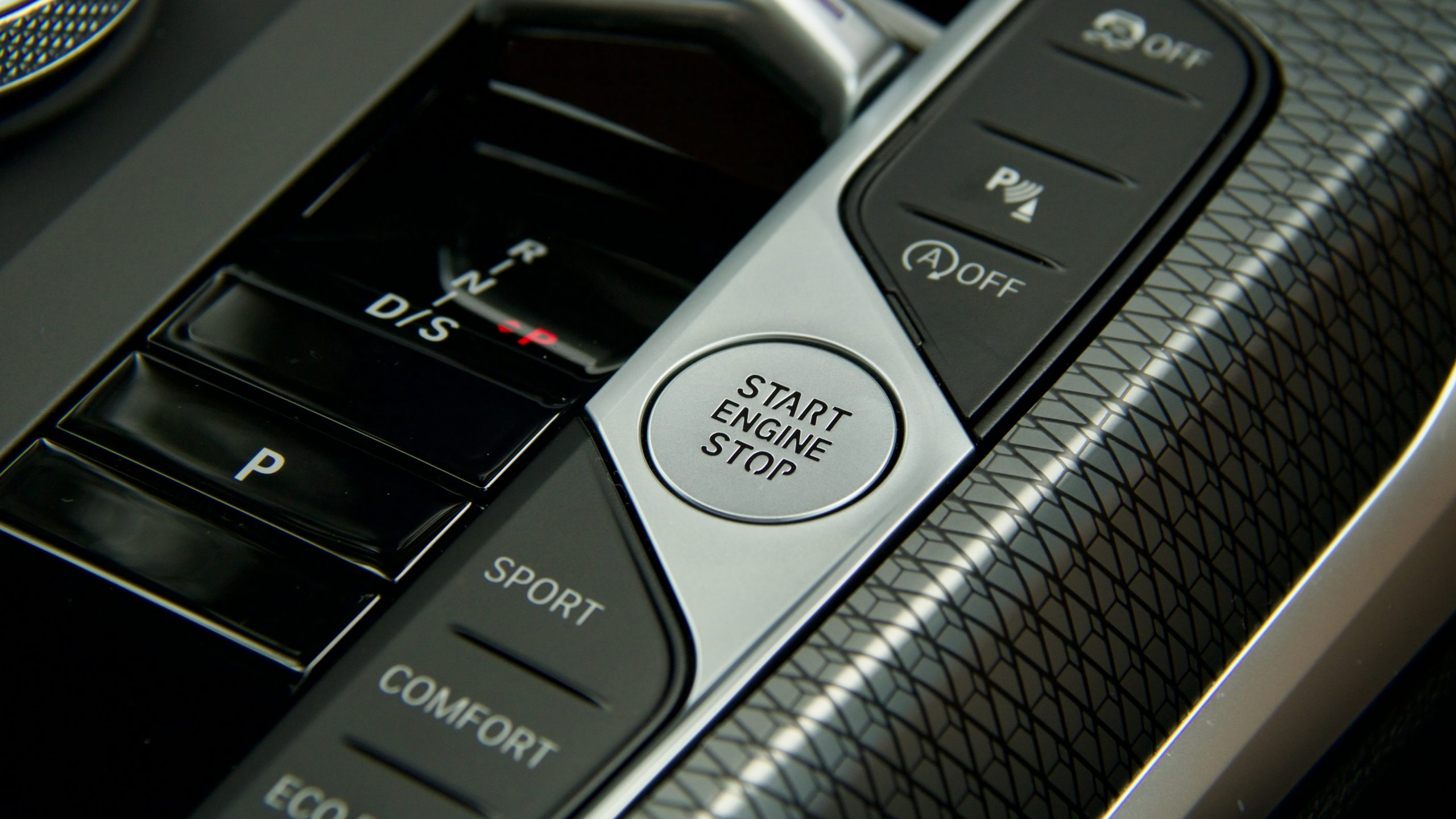
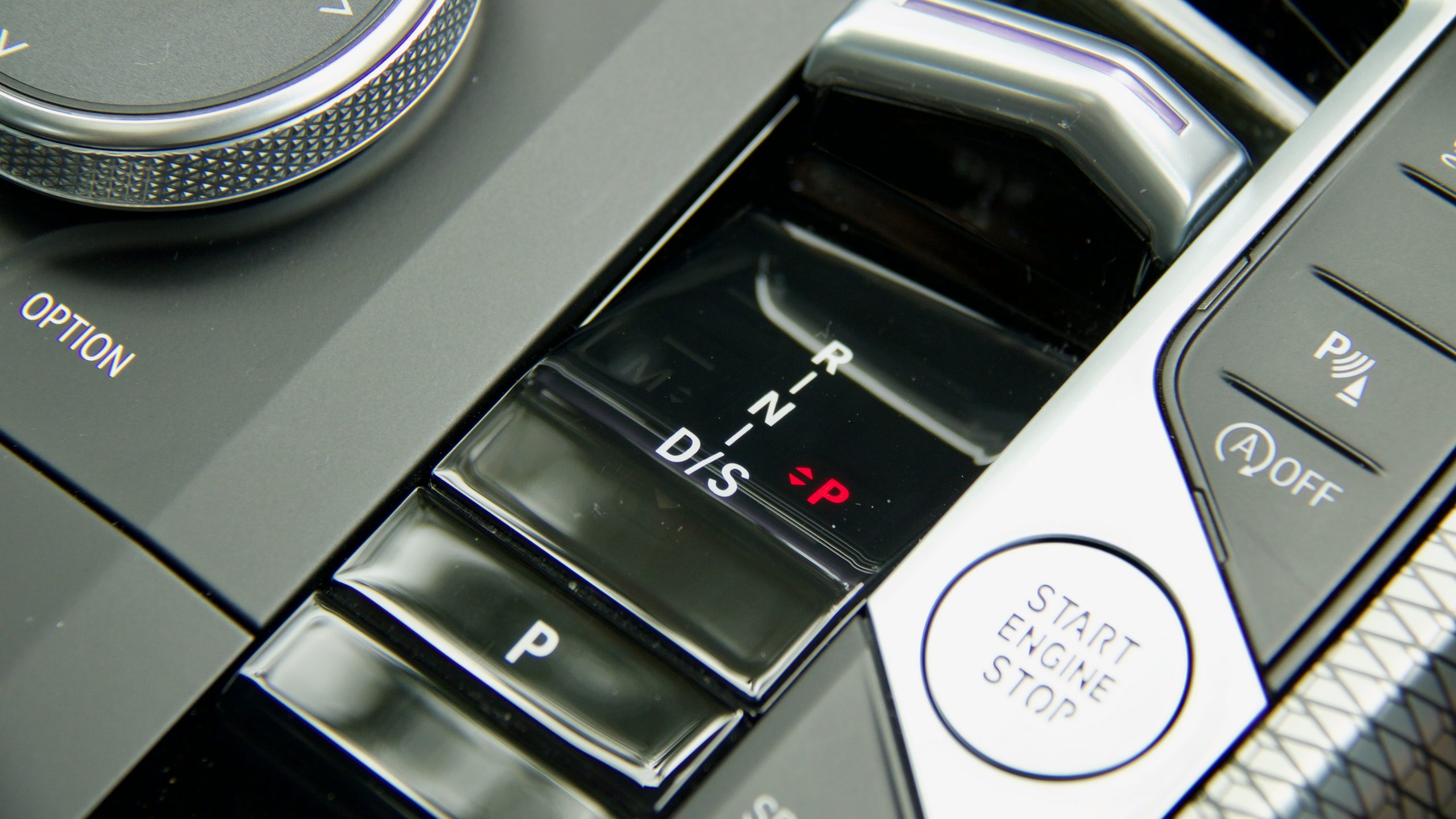
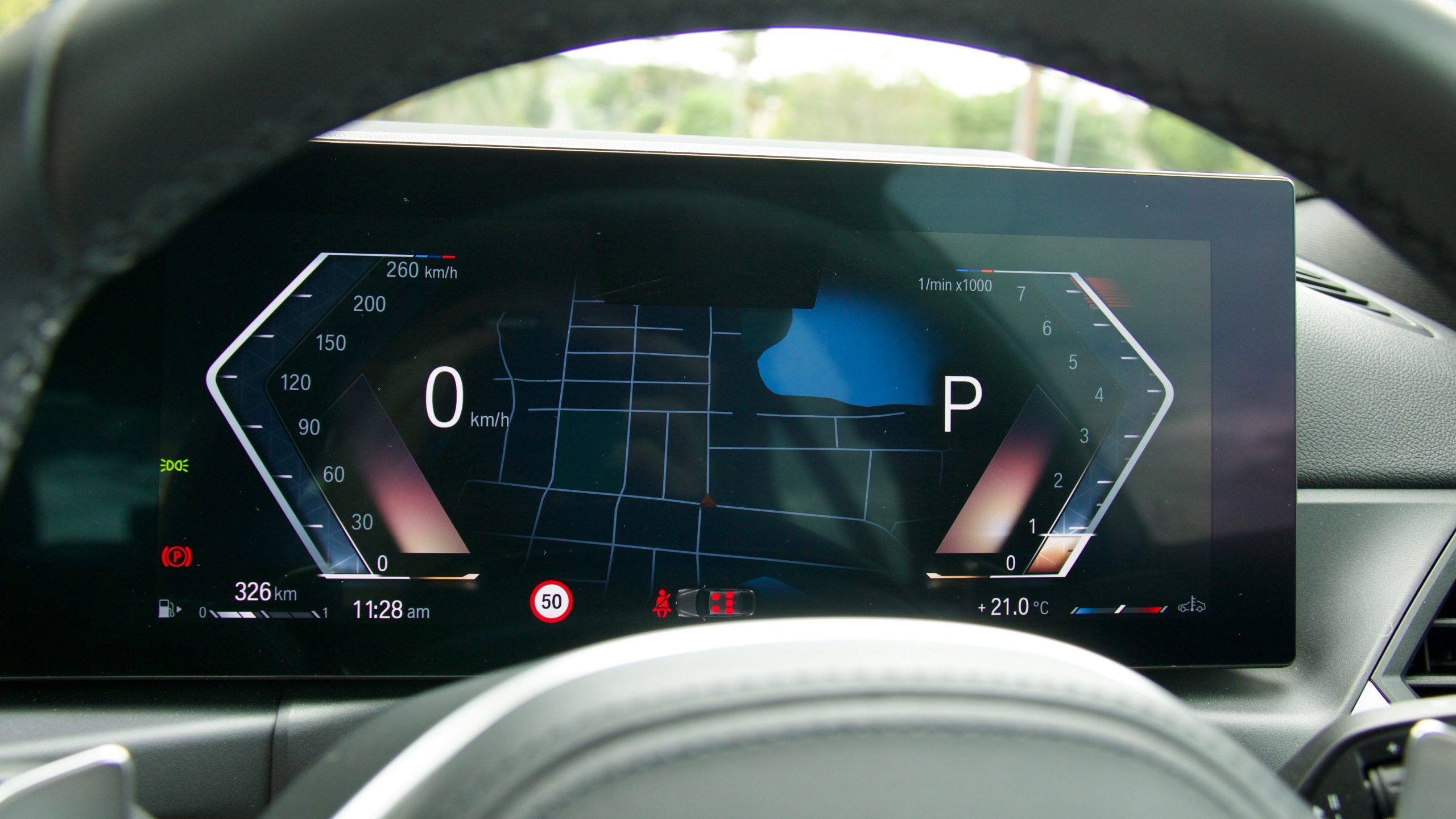
The engine used in the 320i is pretty good. While its outputs are nothing special, it feels surprisingly punchy in the real world thanks to its relatively light 1,478kg tare mass – a C200 weighs 248kg more at 1,722kg. Its peak 300Nm of torque hits from just 1,350rpm and even at low revs, it sounds appropriately sporty with a nice exhaust note. Unlike some modern turbo-fours, the 320i’s engine encourages red line moments too – it sounds pretty good at higher revs and peak power hits at 6,500rpm, so there’s still good propulsion high in the rev range.
The only available transmission in the 320i is an eight-speed torque converter automatic from ZF, and it’s excellent. Like we’ve become used to from other ZF gearboxes, it shifts quickly and smartly without the need for the driver to ever use the paddle shifters for manual control. It also has a sport mode for quicker shifts and generally a lower gear than in drive, but it shifts so well there’s little need to do so.
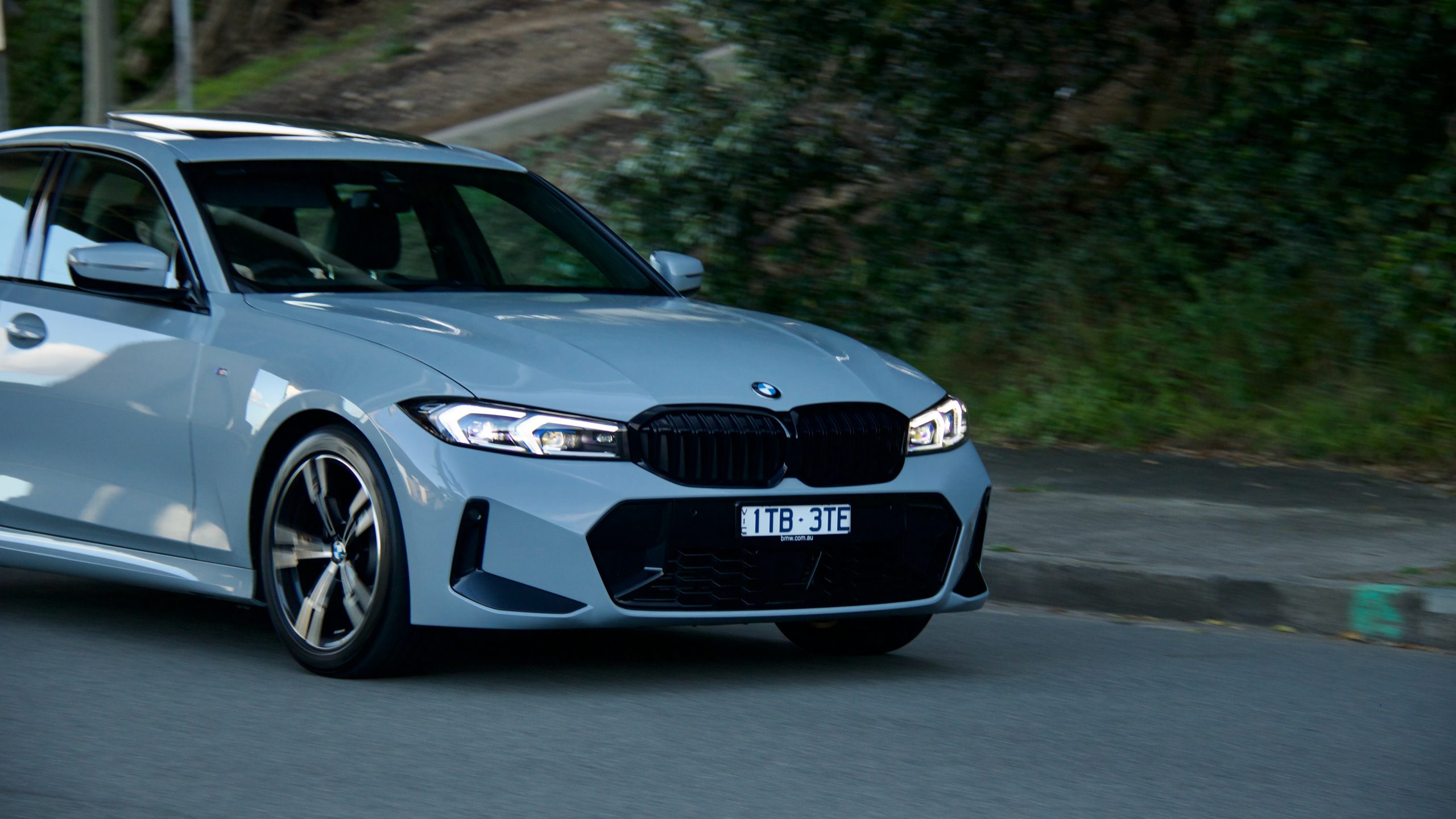
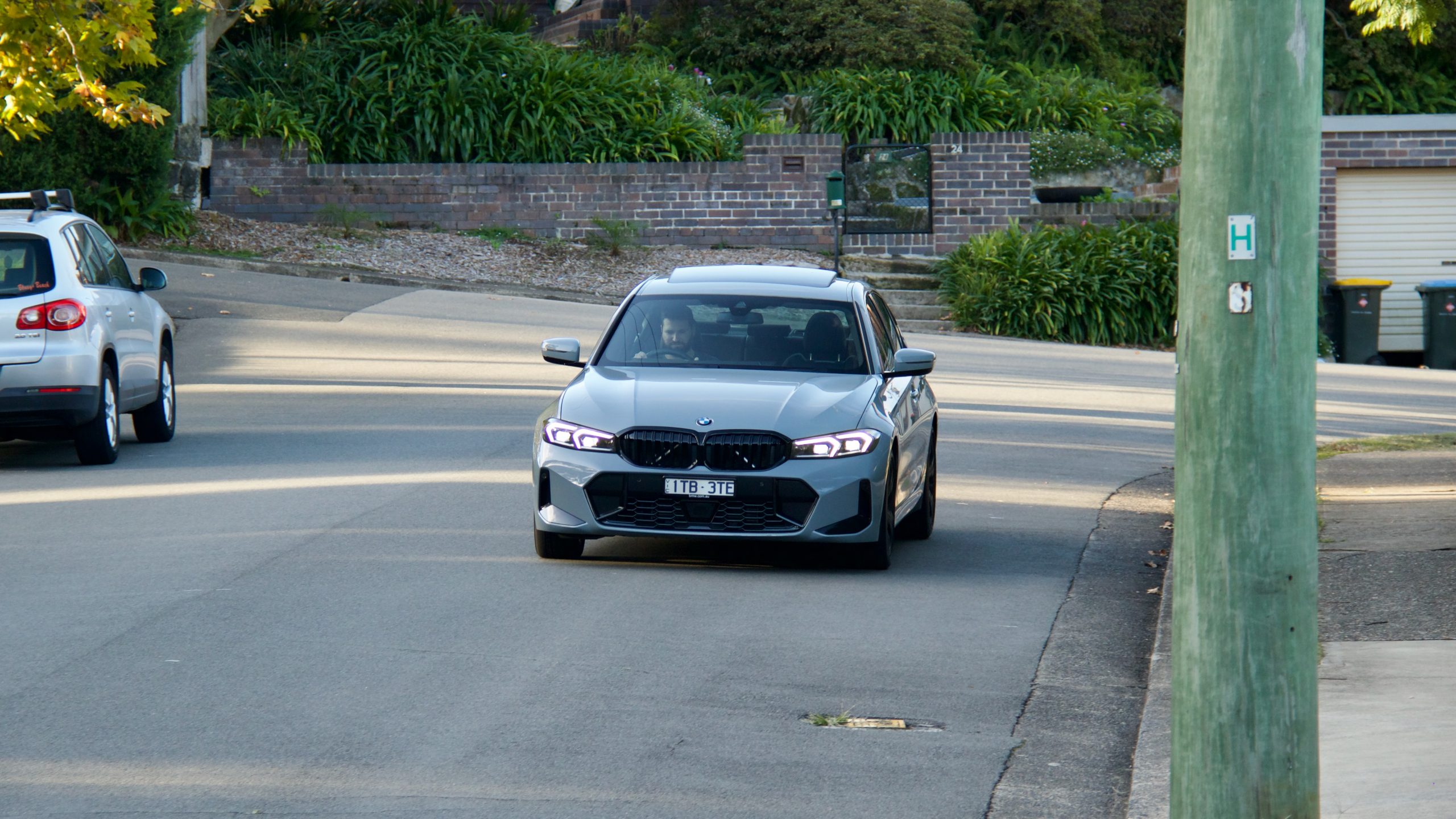
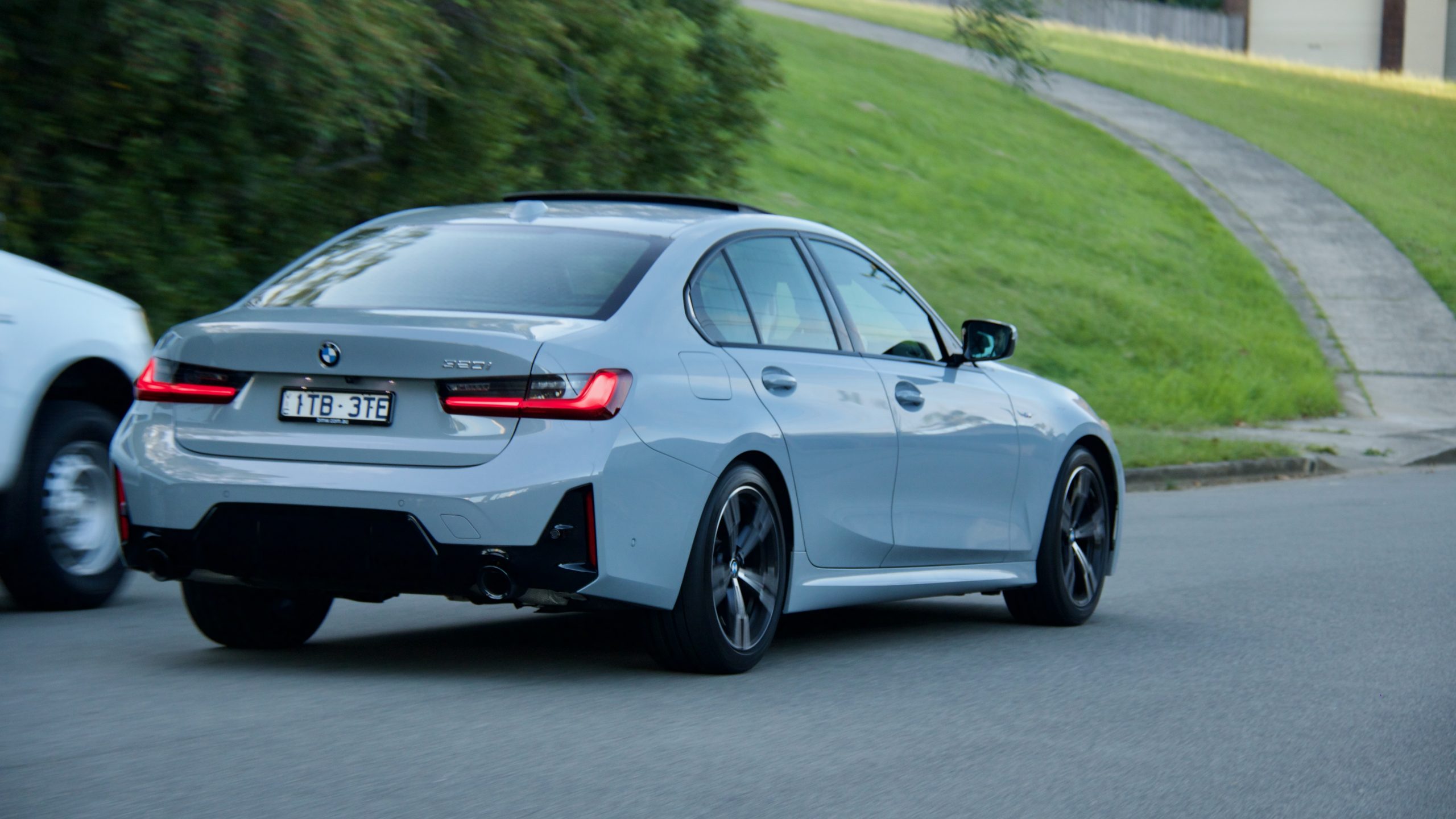
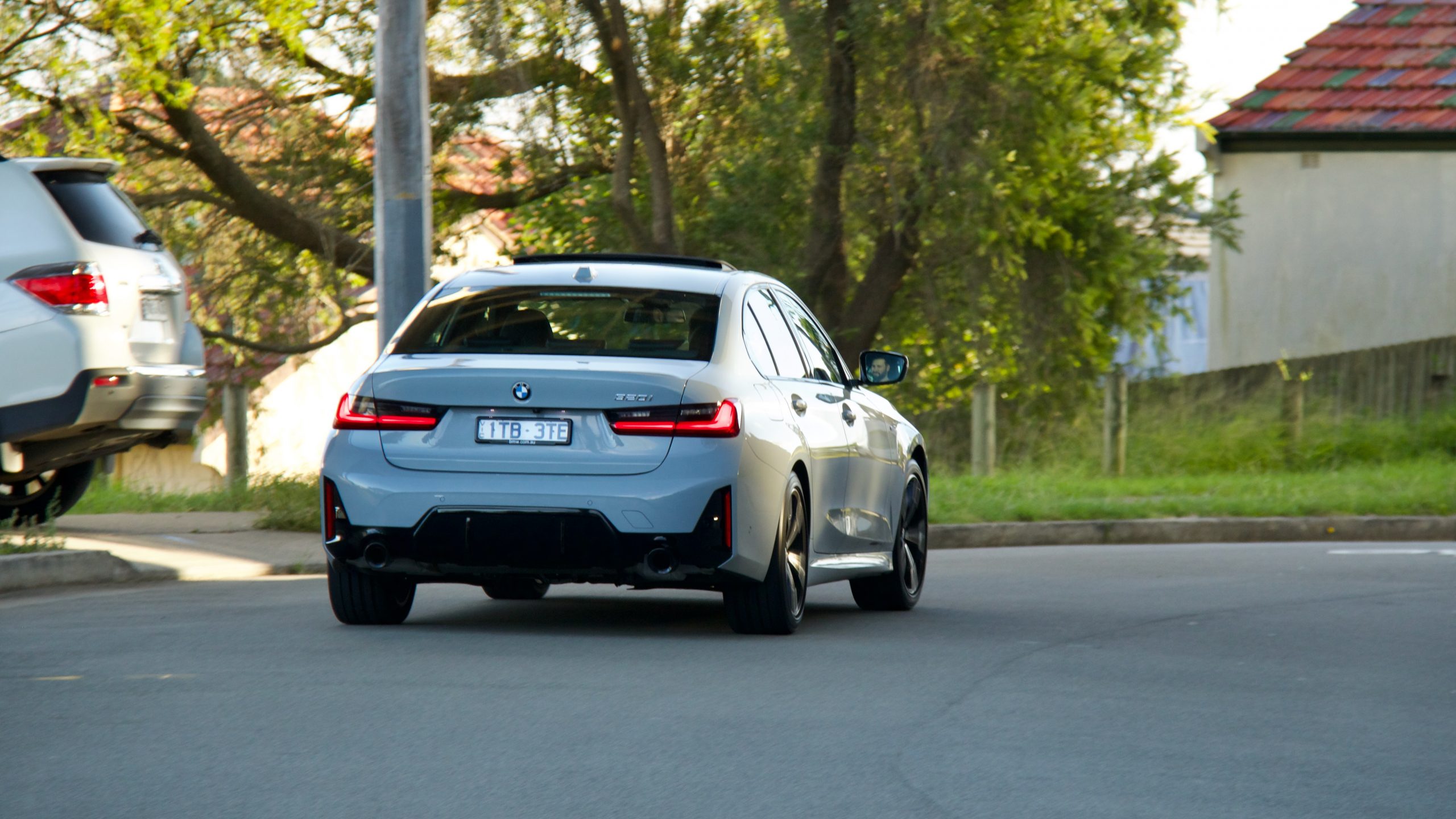
The claimed combined fuel consumption of the 320i is 6.5L/100km with claimed CO2 emissions of 147g/km – that’s against an identical 6.5L/100km and 147g/km for the C200, despite it having a smaller engine and a mild-hybrid system. In our combined testing, we achieved 7.8L/100km, which isn’t too far off the claim. The 320i has a 59-litre fuel tank and uses minimum 95RON premium unleaded fuel.
Ride & Handling: 9/10
As you’d expect for a 3 Series, the 2023 BMW 320i handles quite well. It’s not quite Alfa Romeo Giulia sharp, but there’s far more involvement in the chassis than an Arteon, for example. As with the Giulia, the 3er’s driving position is nice and low, while the steering wheel is suitably thick for spirited driving. In normal driving, the ride quality is a touch firm, despite the smaller wheels in the range – adaptive dampers on higher-end models fixes that a touch. Those looking for a more traditionally luxurious ride quality will appreciate the C200’s softer ride quality- we prefer the sportier BMW, however.
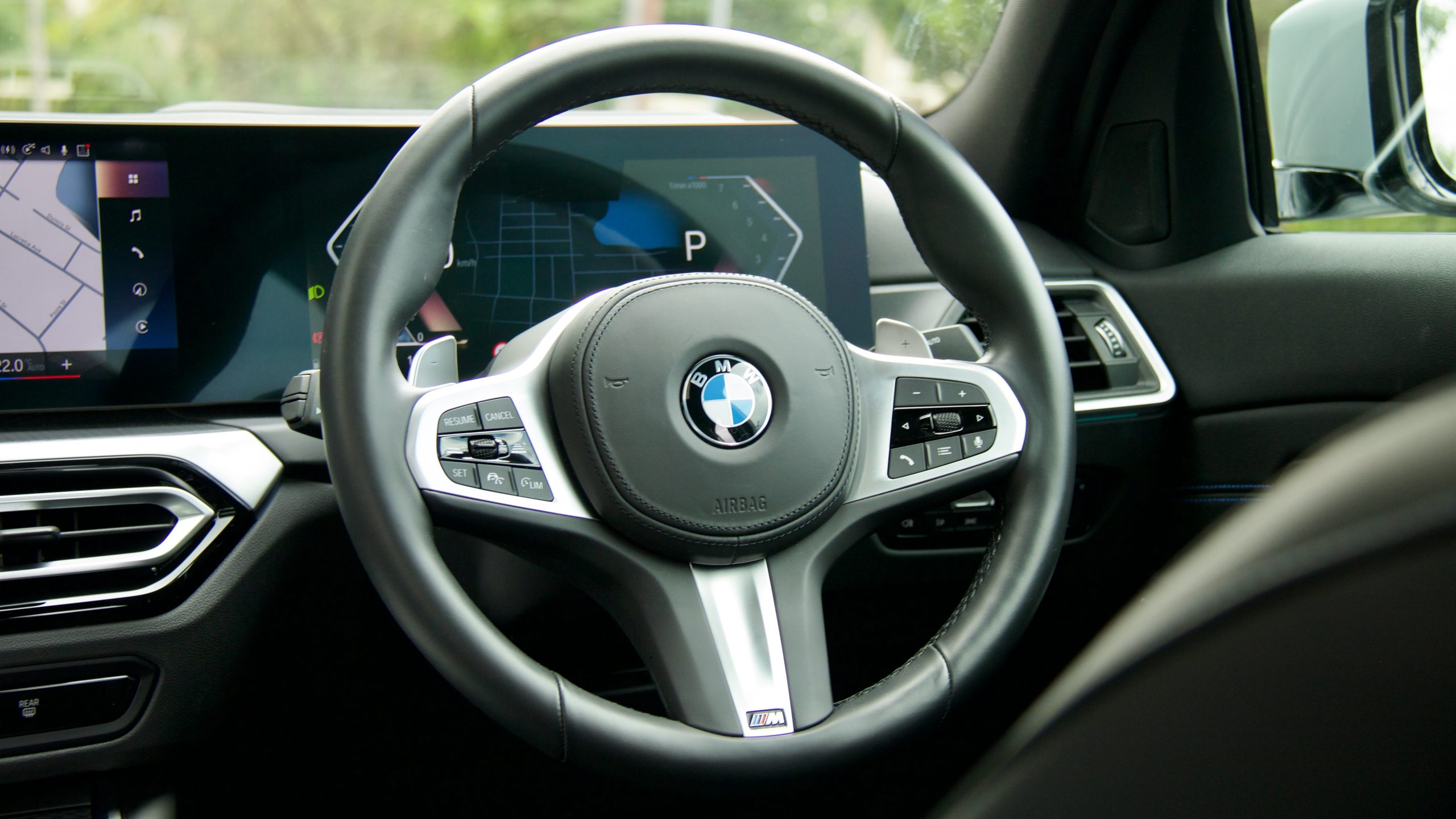
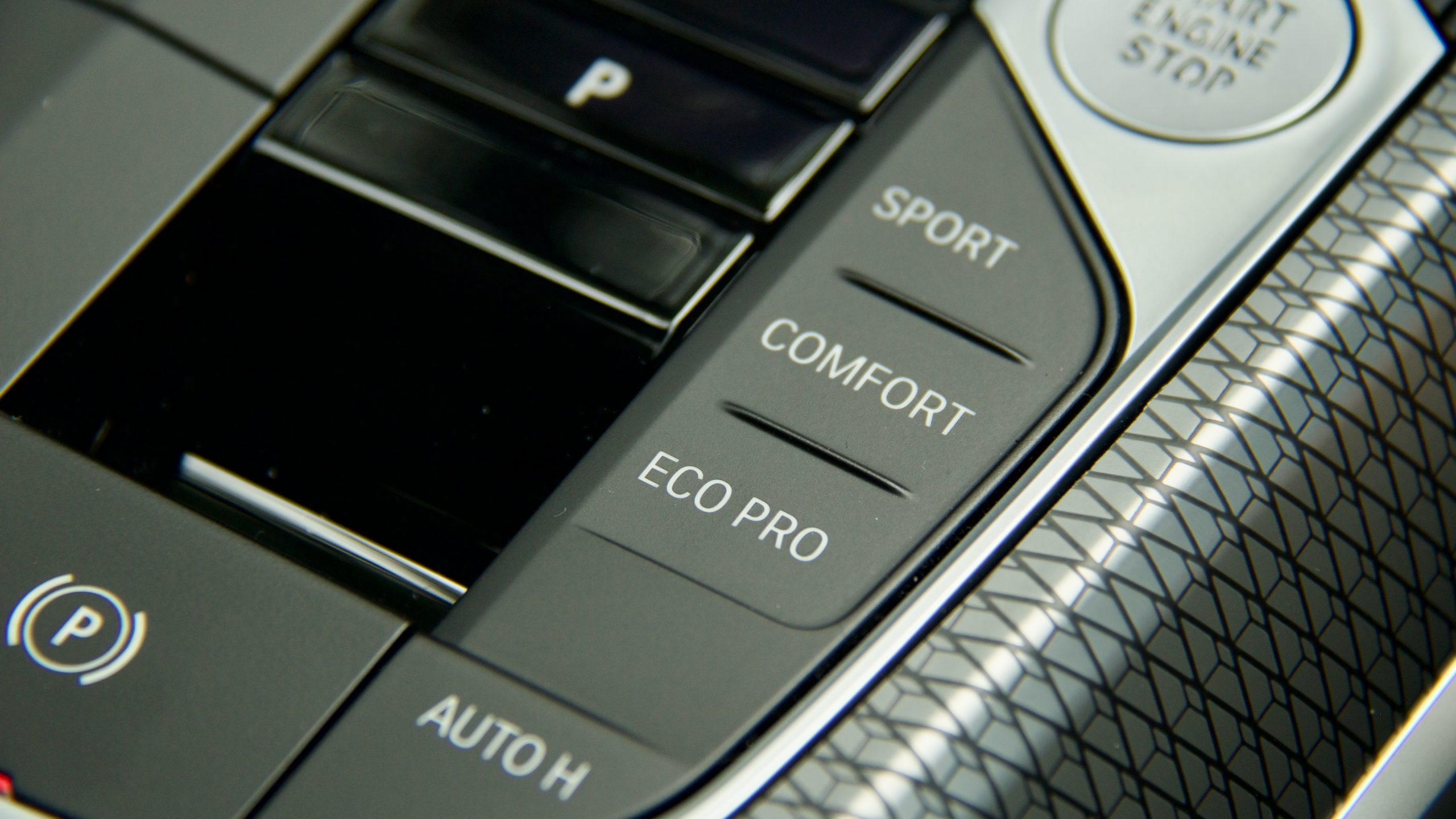
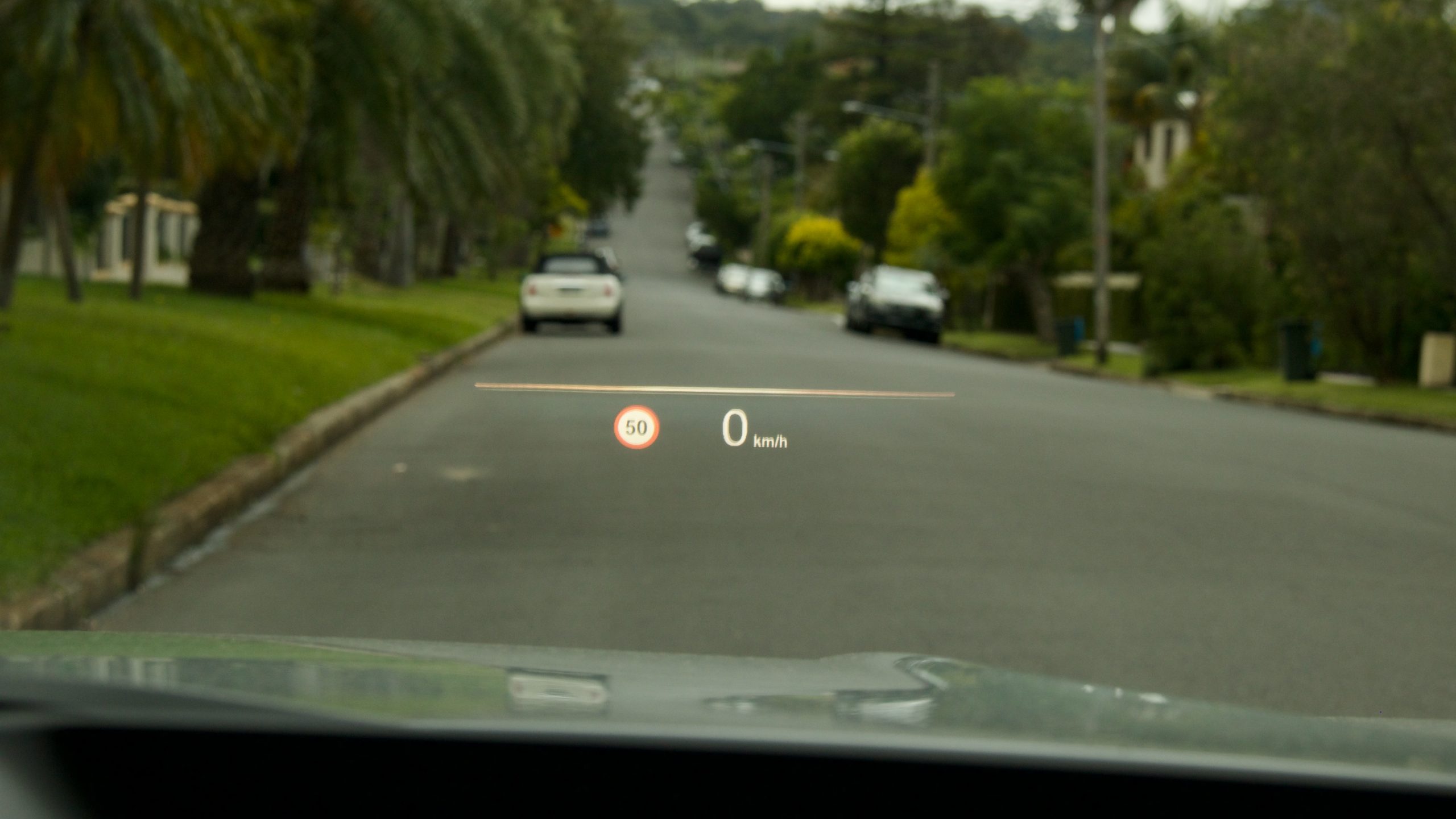
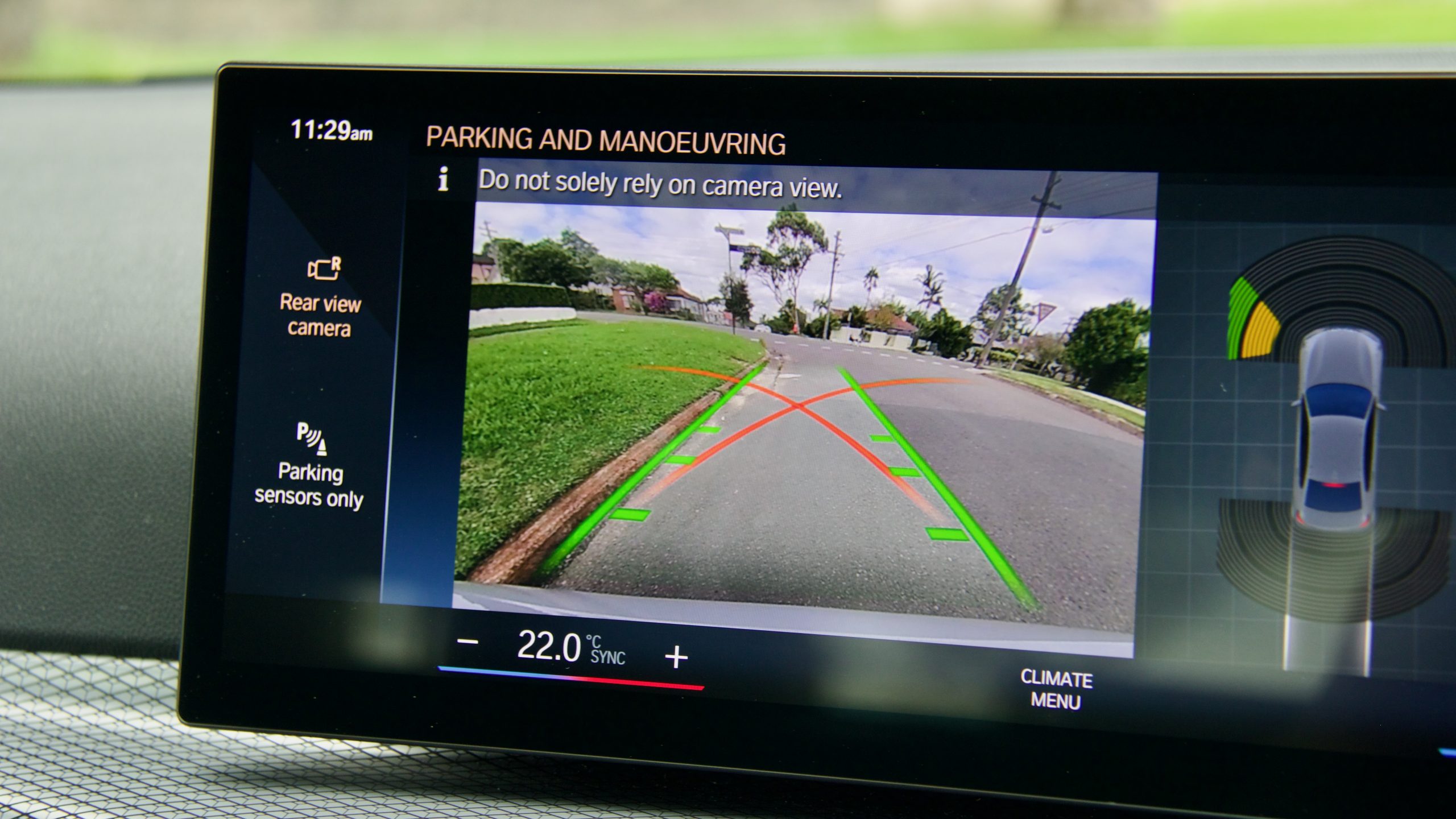
The handling of the 3er isn’t Giulia sharp either, as it doesn’t feel quite as light on its feet, but it’s still a really fun car to drive. The lighter kerb weight of the base 320i gives it a freer front end than the all-wheel drive M340i, while it also has excellent body control, particularly in a quick set of bumps. The chassis is very well balanced too, and the steering is nicely weighted and quite direct.
Where the 3 Series does have the Giulia beaten, however, is in its refinement. BMWs are traditionally quite refined and the 3er is no different, thanks to excellent sound suppression. In addition, the front seats are comfortable and provide excellent support, though no lumbar adjustment is annoying for the price. Thanks to its comfort, plus the excellent active safety kit we’ll detail below, the 2023 BMW 320i is a car that you could happily drive all day in.
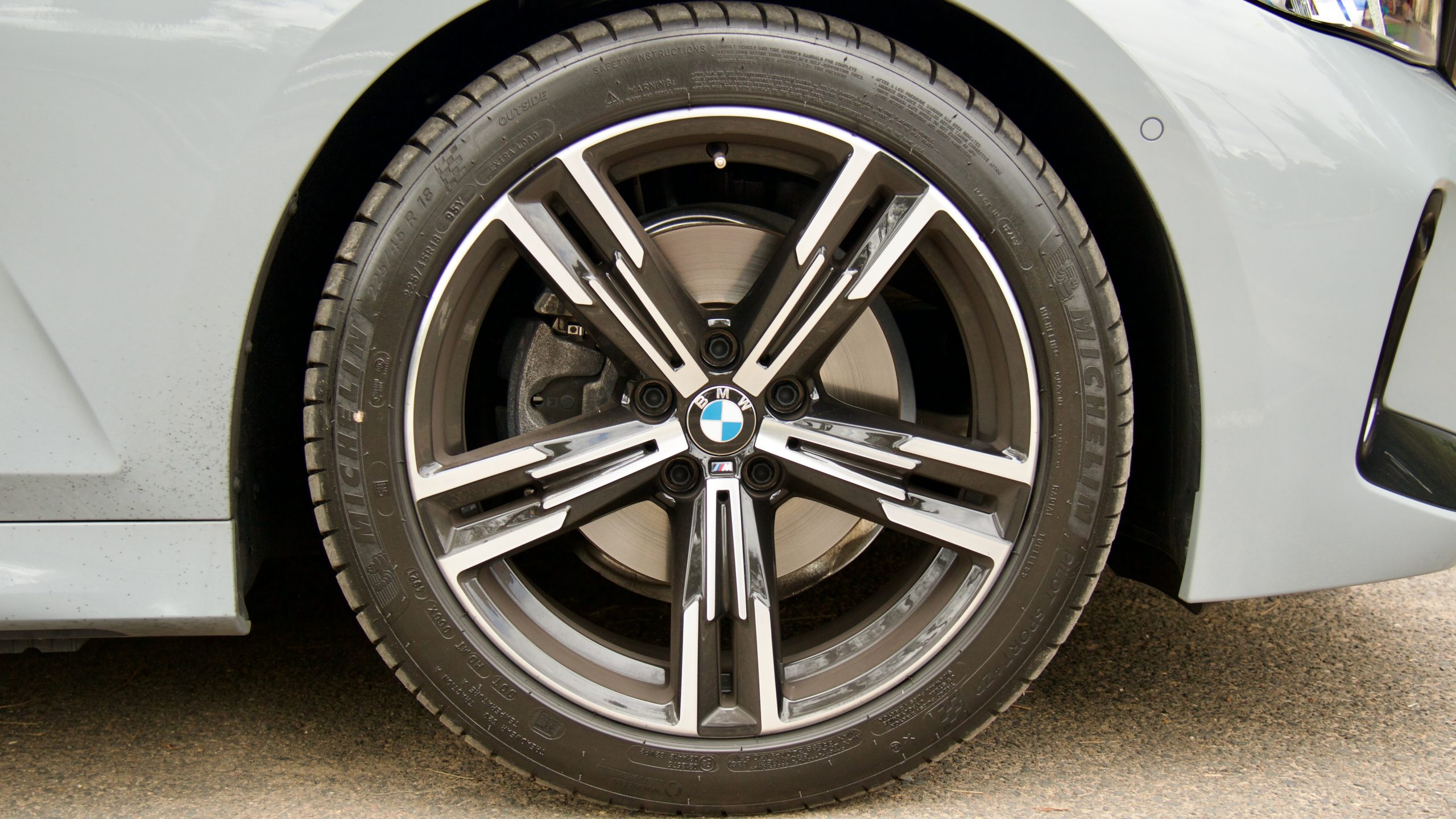
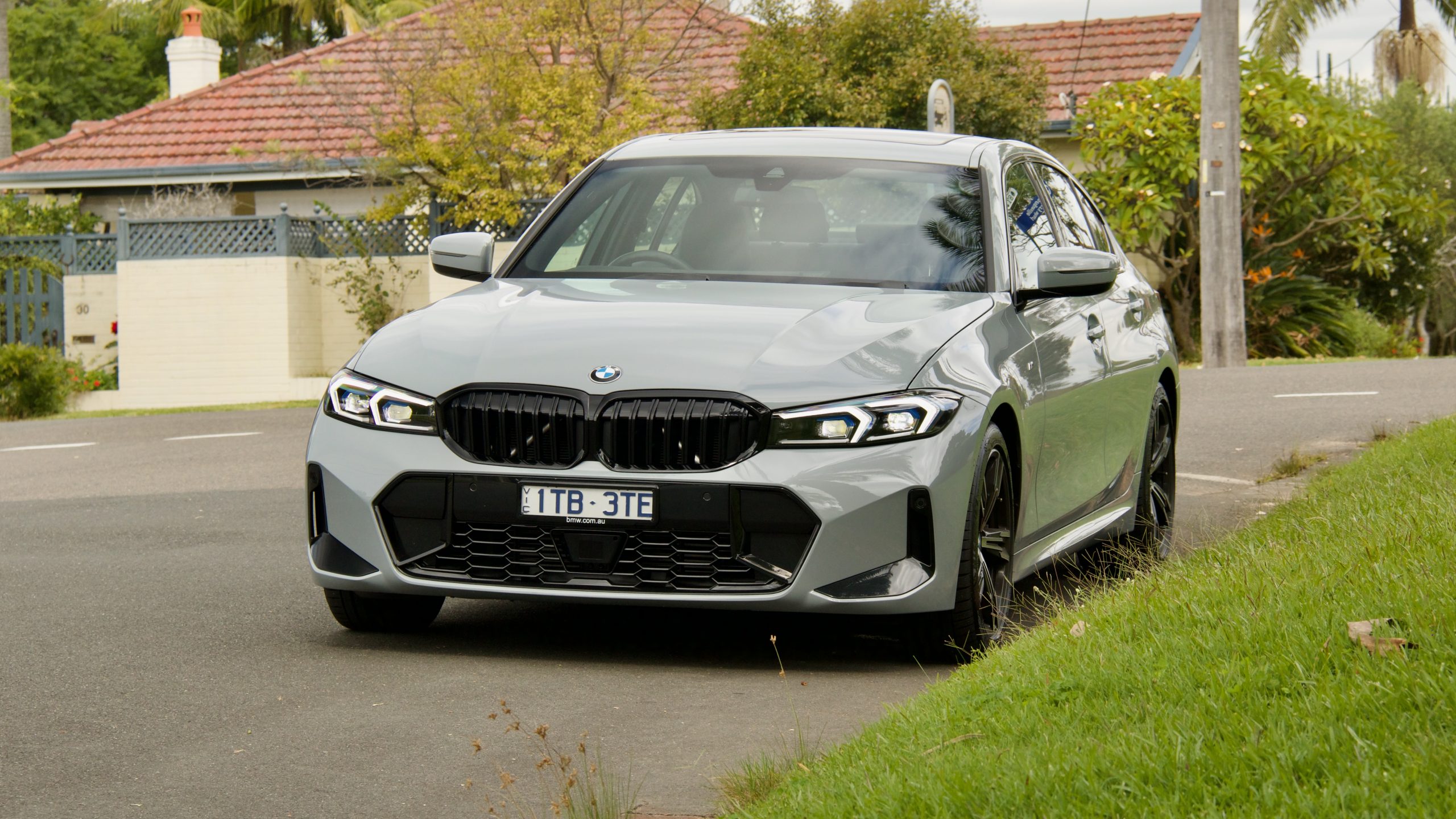
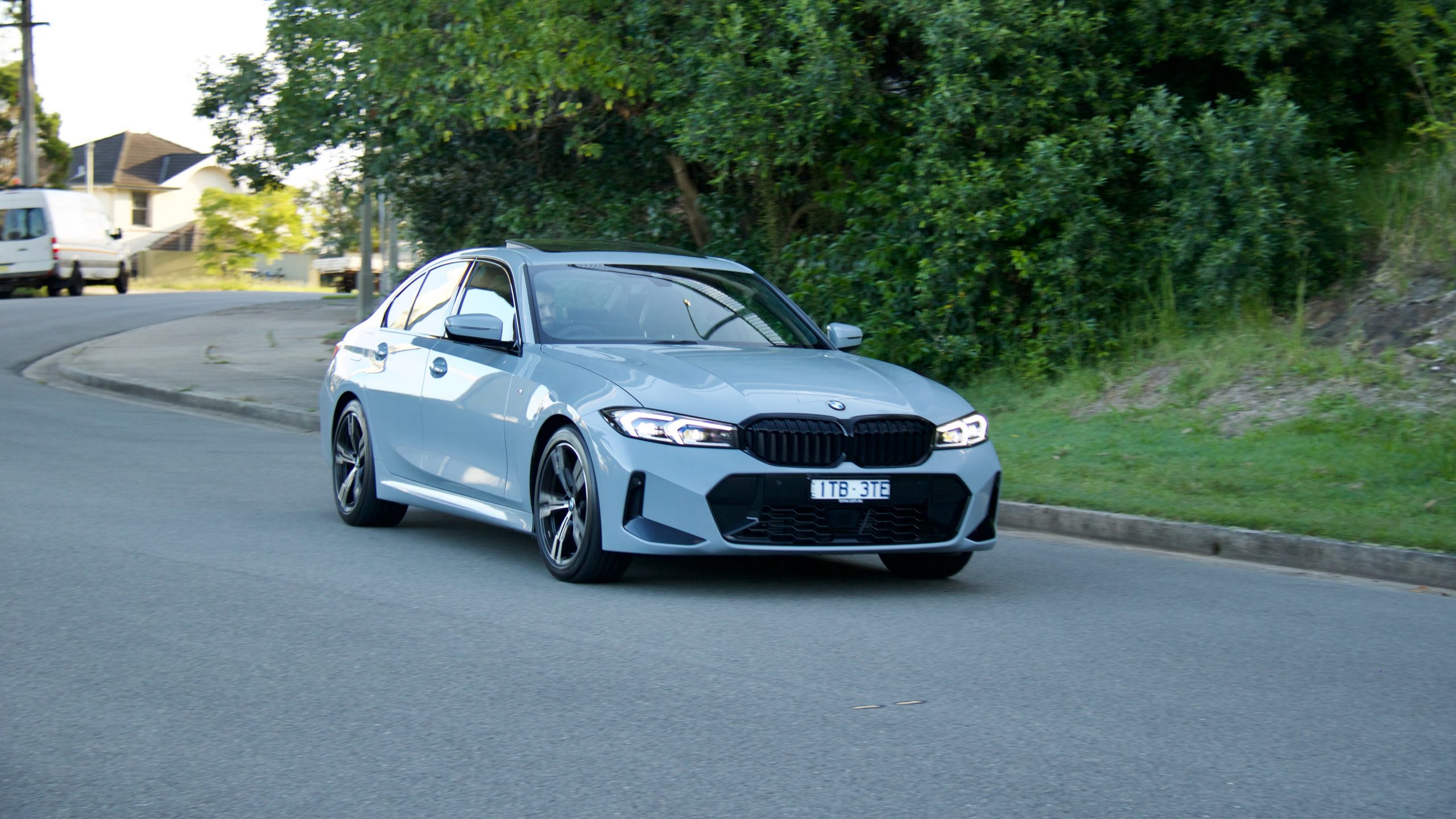
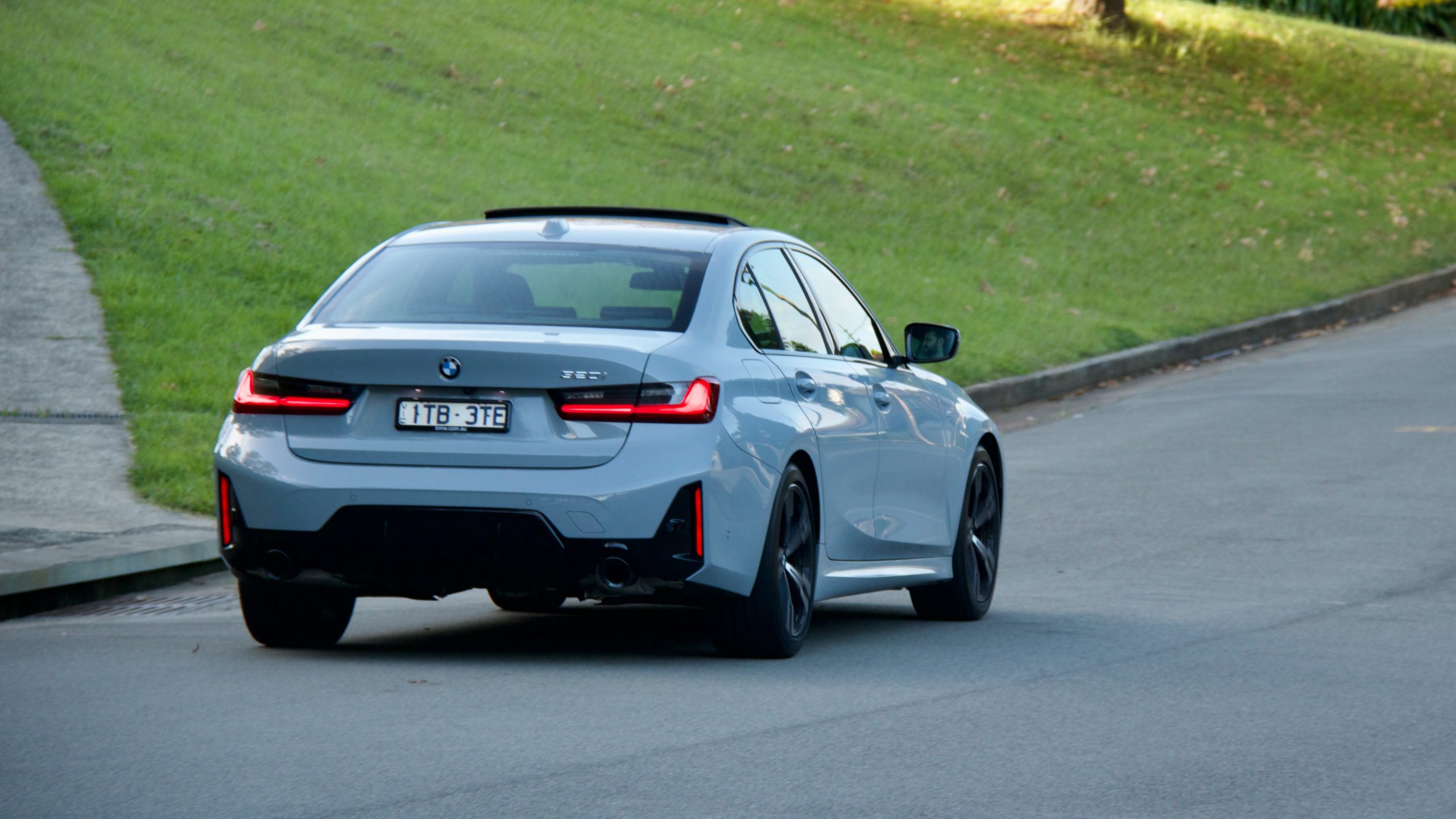
We also quite like BMW’s suite of active safety kit. Although there’s no standard lane trace assist like in higher models, the adaptive cruise control is still quite intuitive (particularly with overtaking a slower car), the lane keep assist isn’t too interrupting and the rear camera picture quality is excellent too. The heads-up display is also high quality and isn’t affected by polarised sunglasses. Annoyingly though, the lane trace assist and 360-degree camera are saved for the options list or the higher-end 330i.
Interior & Practicality: 9/10
As you’d expect for one of the most iconic names in the car business, the interior of the 2023 BMW 320i is largely a standard setter in the premium mid-size sedan segment. Thanks to its high quality materials, solid ergonomics, well integrated tech and seemingly endless features, the cabin of the 320i presents very well – there’s no typical base model feel here, that’s for sure.
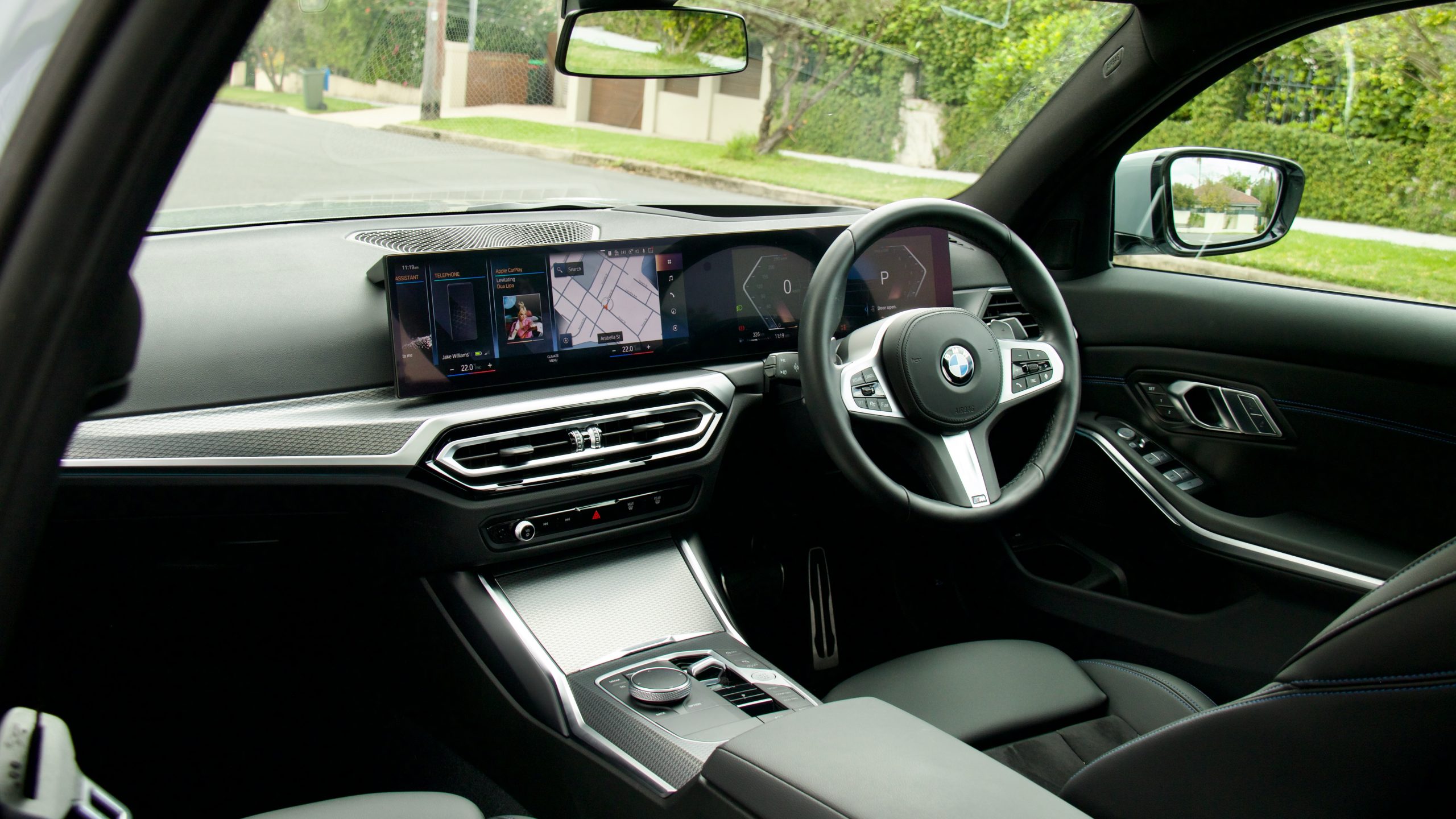
Centre of the 3er’s cabin is a huge 14.9-inch touchscreen with a plethora of features: live services like weather and news, wireless Apple CarPlay and Android Auto, navigation with live traffic and digital radio. The screen features BMW’s latest iDrive 8 operating system, which can be initially overwhelming to learn thanks to the sheer amount of features packed in and some confusing menus.
The menu layout is not as intuitive as the previous operating system – which is still used in the 2 Series – though, unlike the new X1, it at least has a wheel controller on the centre console for easier use while driving. But the screen quality is fantastic, and the curved display joining both the infotainment and driver’s display looks great too. The standard sound system is reasonably punchy as well, though audio lovers will want the Comfort Pack for its excellent Harman Kardon sound system.
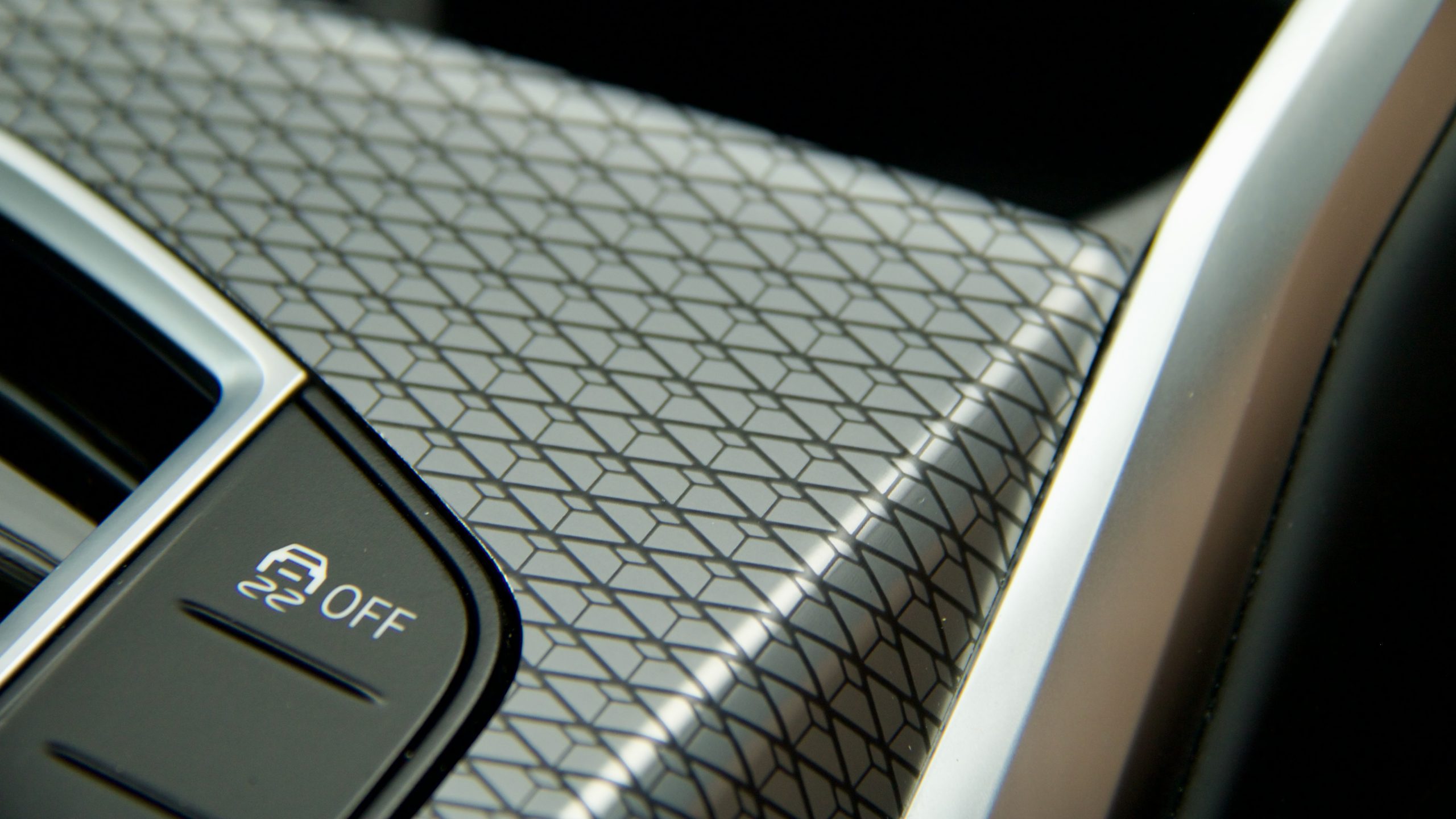
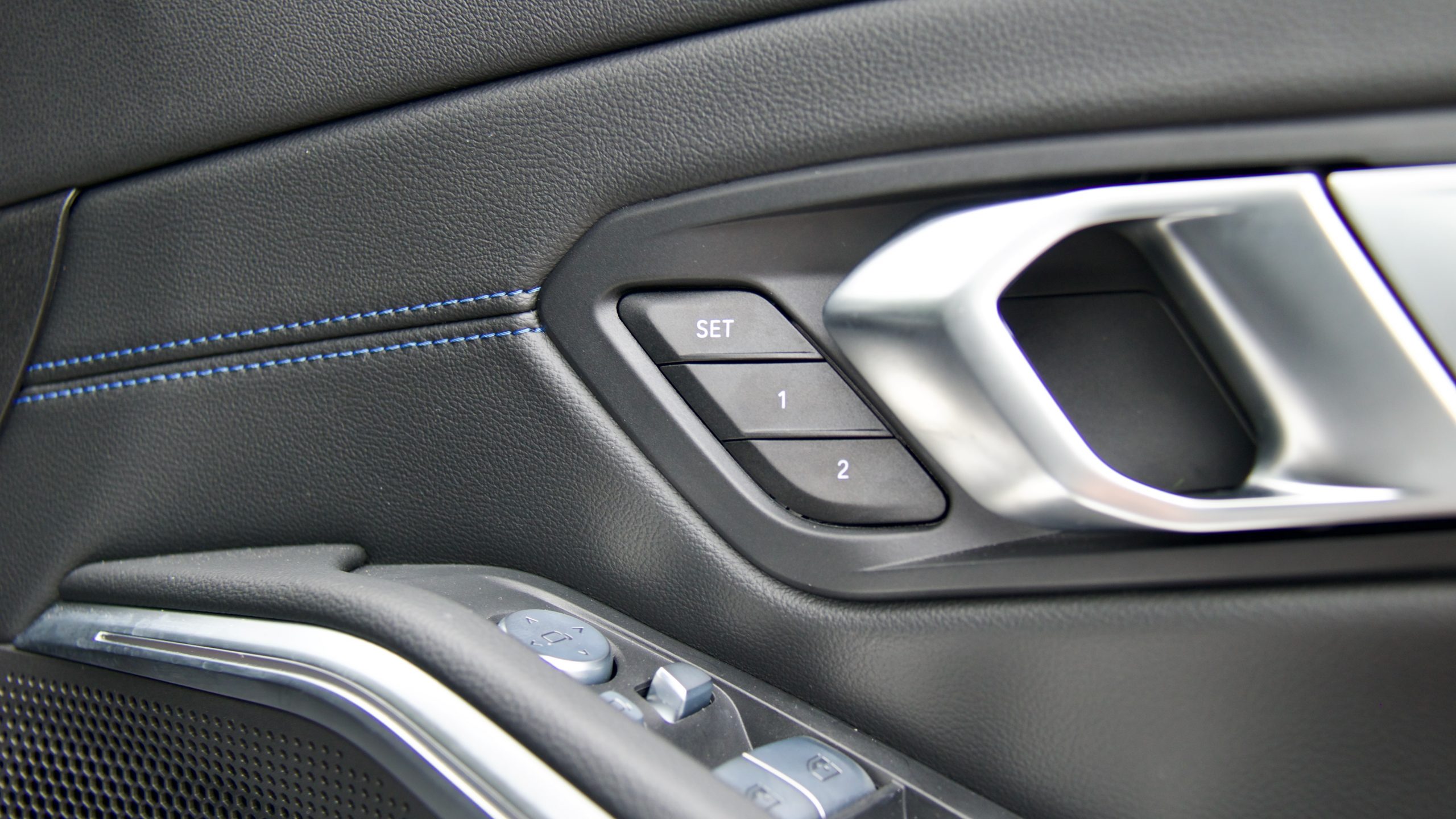
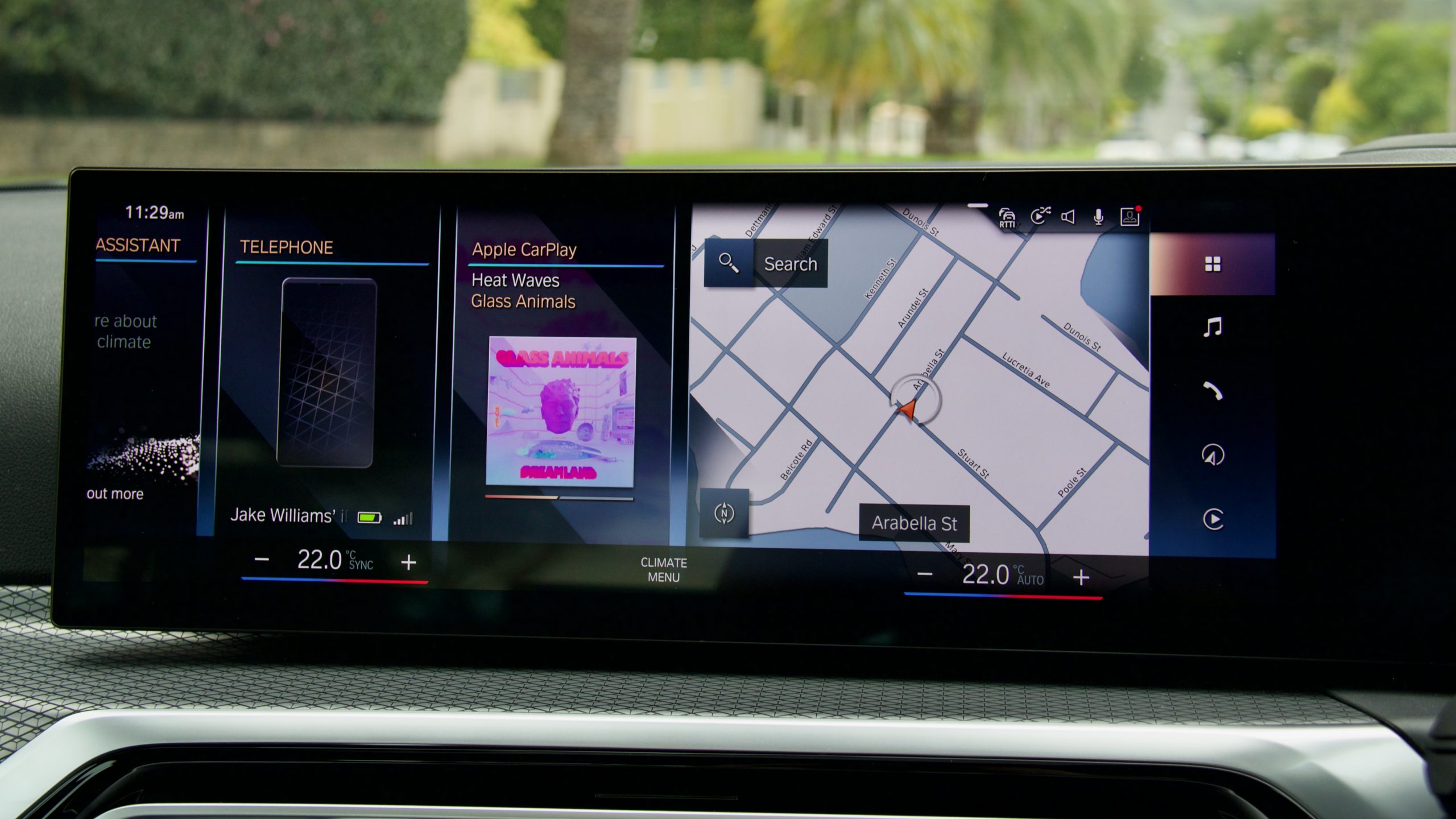
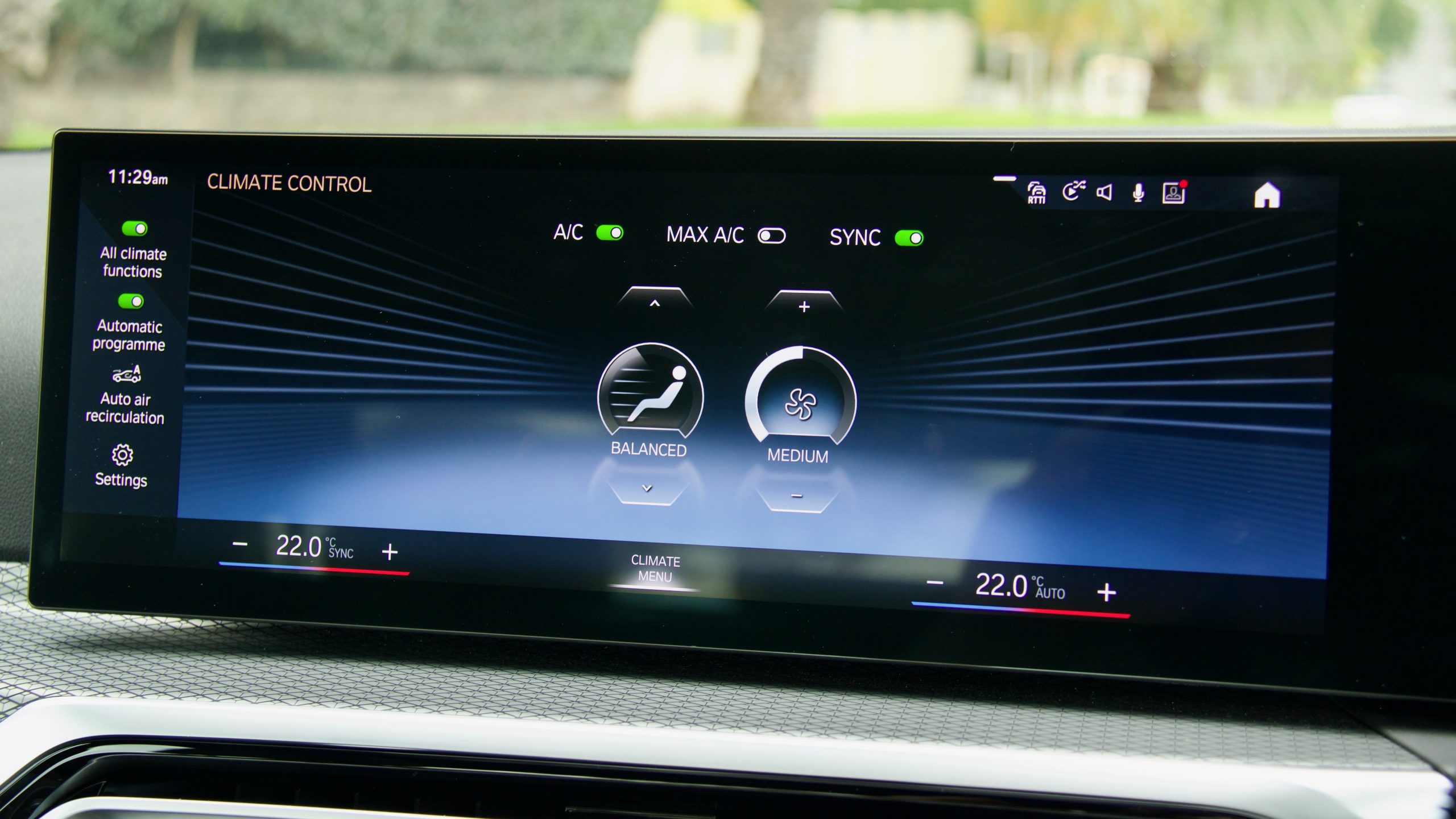
The storage inside the 3 Series is healthy too, with big door bins, a big box underneath the centre armrest, big cup holders in the centre console (where the wireless charger is) and a big glovebox too. There are three USB ports in the front – one USB-A mounted near the cup holder and a USB-C port in the centre box.
The rear seat of the 3 Series is reasonably spacious, though certainly not as roomy as the Volkswagen Arteon. But adults around six-feet tall will be quite comfortable as both leg- and headroom are reasonable, the seats themselves are supportive and it’s a well featured space with a centre armrest with cup holders, door pockets, a separate climate zone and two USB-C ports for charging. There are also two ISOFIX ports on the outer seats and three tether points for child seats.
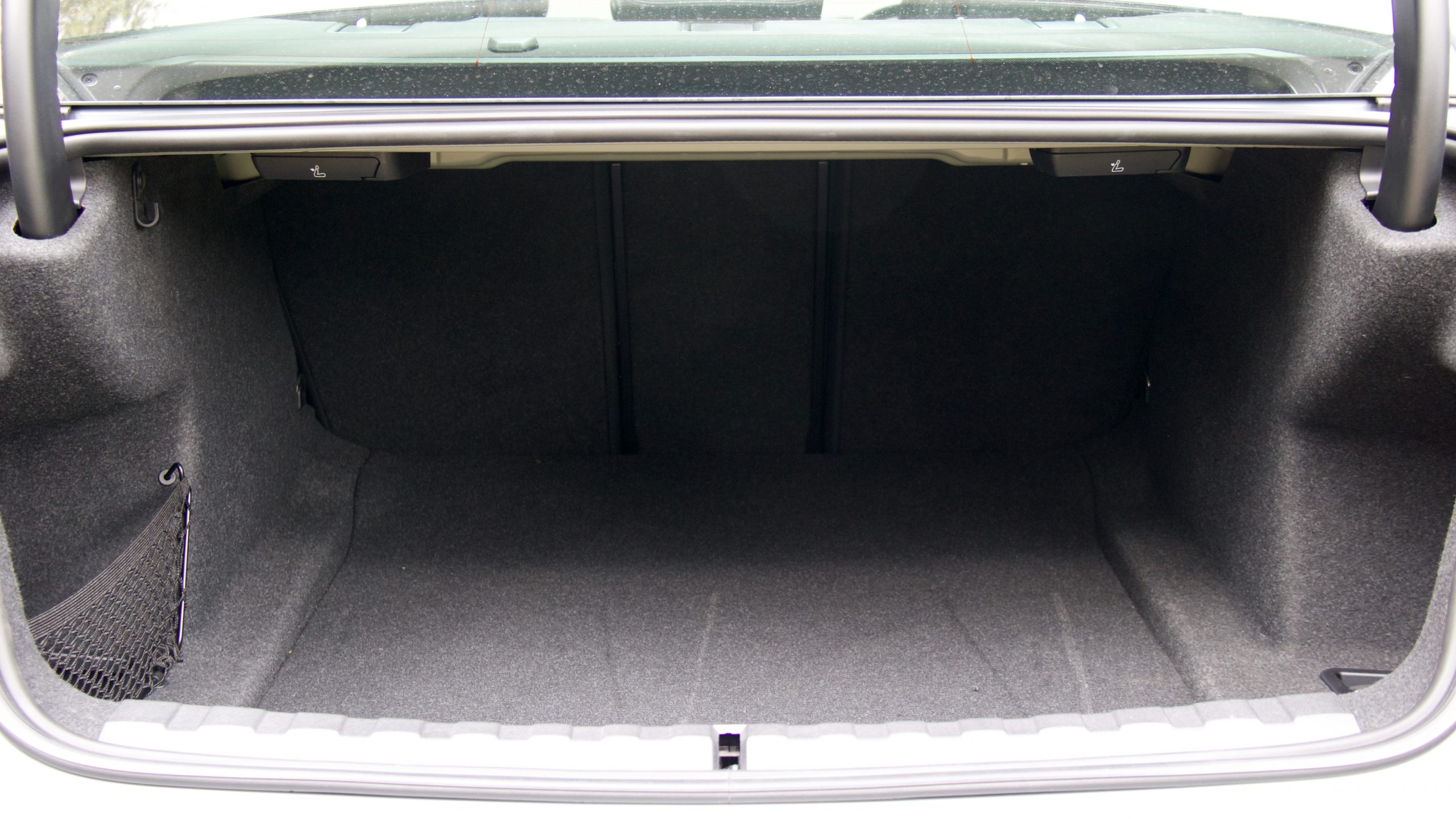
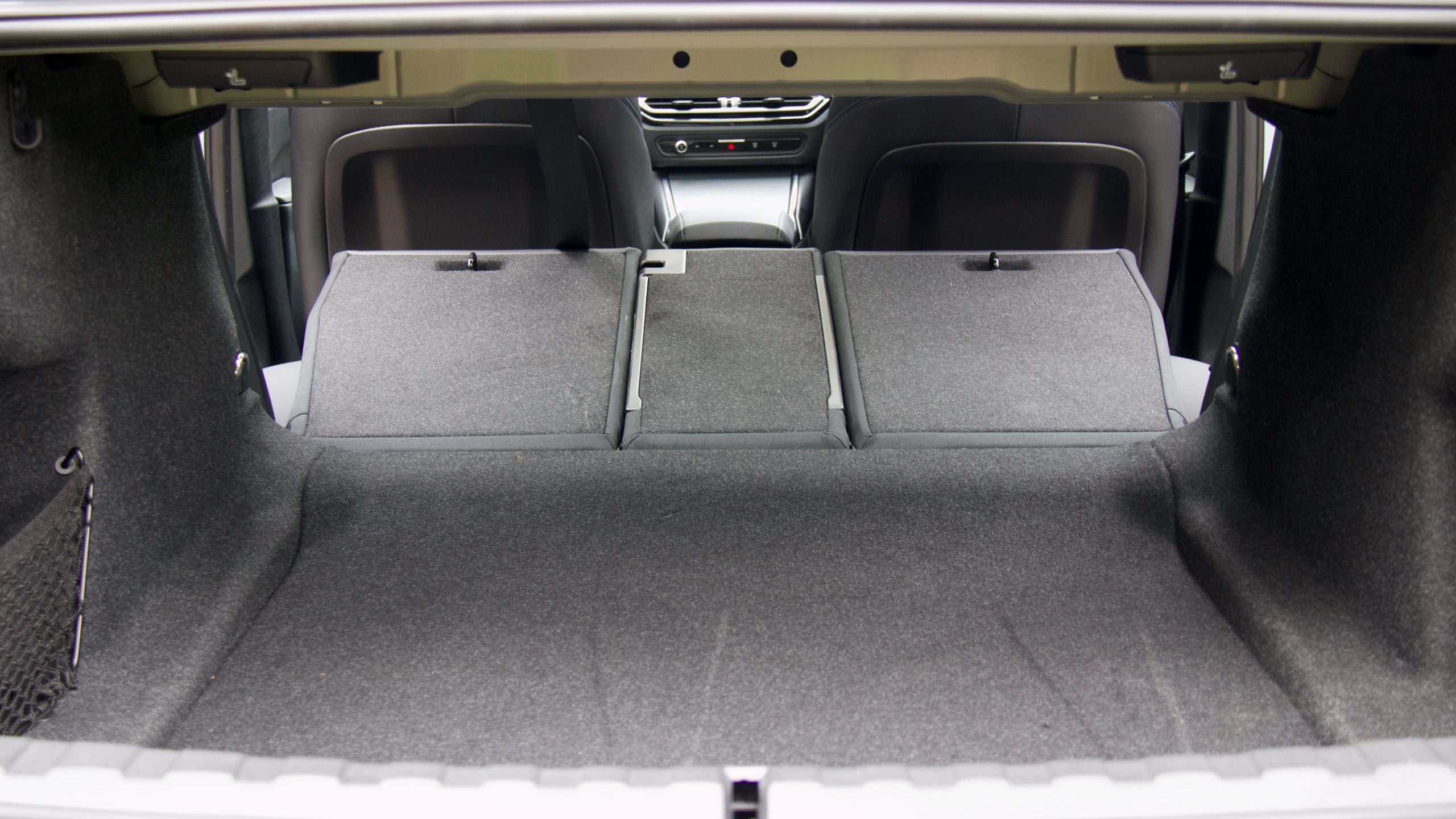
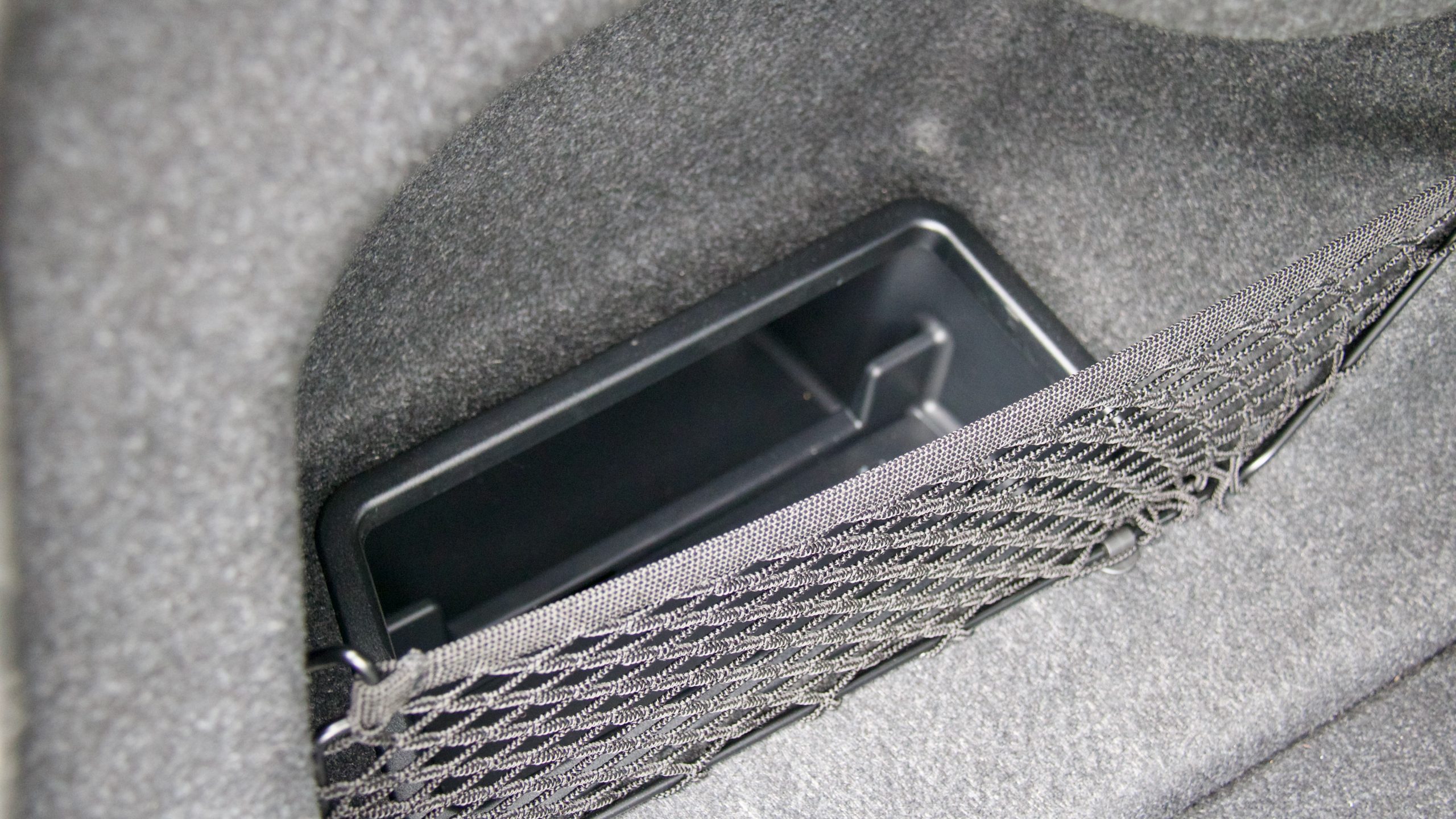
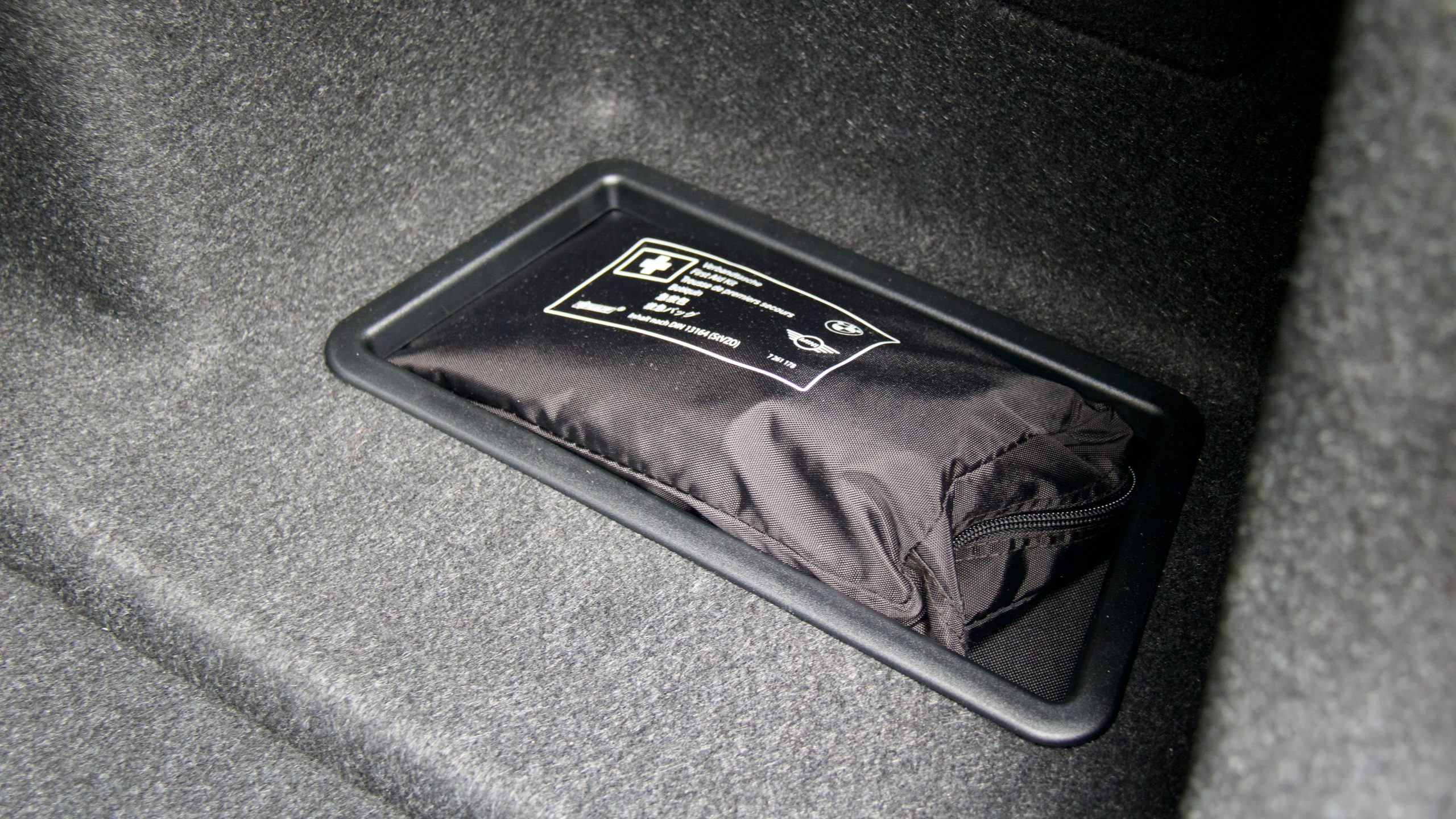
The boot of the 2023 BMW 320i measures 480-litres, which is healthy for the segment, and if you need more space, the rear seats fold in a 40:20:40 split. The boot has a few features like side storage and underfloor storage, but there’s no spare wheel.
Service & Warranty: 8.5/10
Like the greater BMW range, the 2023 BMW 320i is equipped with a five-year/unlimited km warranty with only three years of roadside assistance. BMW doesn’t quote service pricing, but a five-year/80,000km service pack is $2,150 ($430 per service). The 3 Series has condition-based servicing, but once-yearly/every 15,000km is given as a general guide.
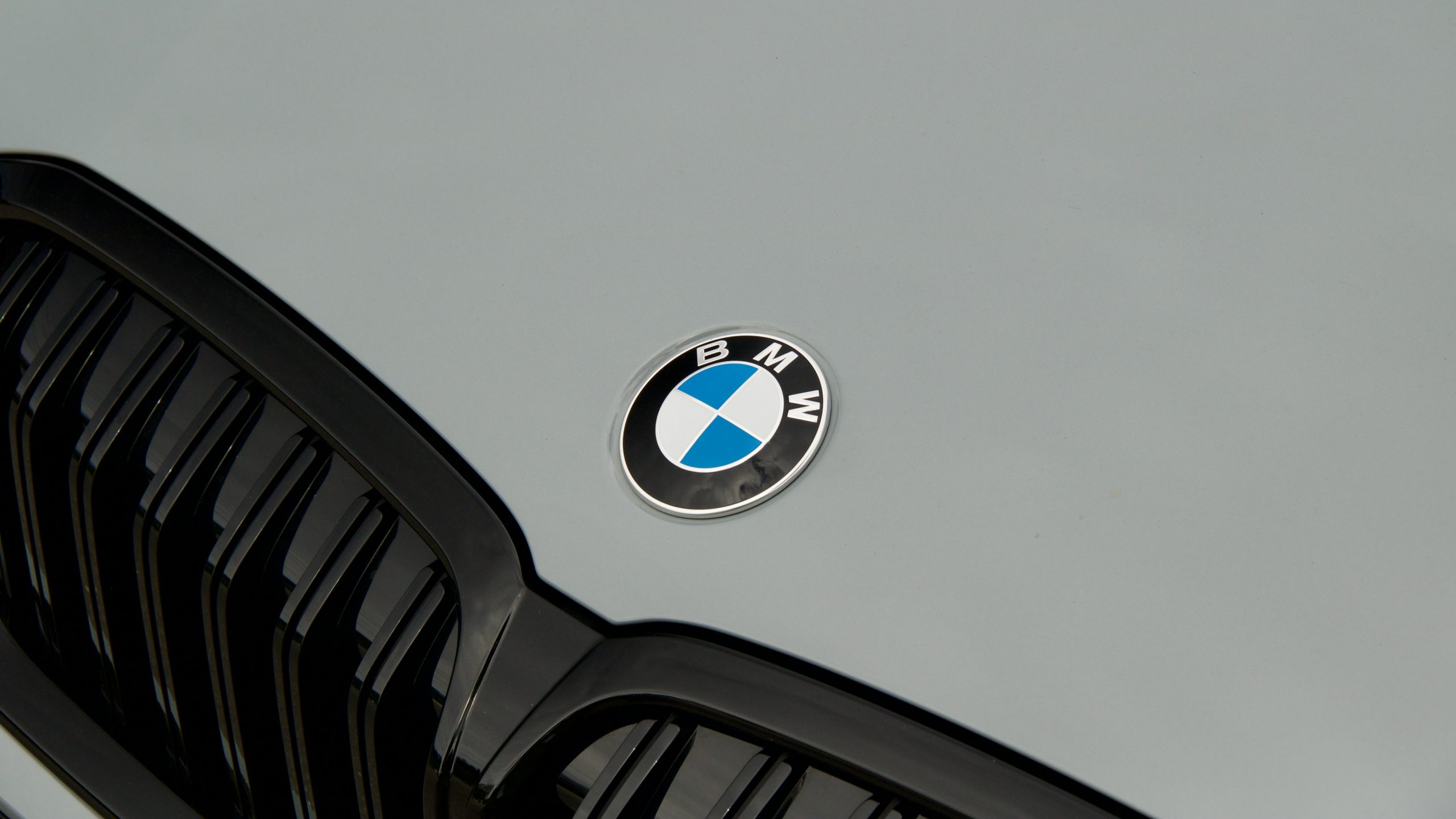
All the BMW’s competitors feature five-year/unlimited km warranties as well, though they all feature longer roadside assistance programs – Mercedes-Benz, Alfa Romeo and Genesis give you five years’ worth, while Volvo gives you a great eight years. But against rivals – aside from Genesis, which includes five years of servicing in the price – the BMW’s service pack is good value. Servicing the Giulia over the same time period costs $2,865 ($573 per service), for example, while a C200 costs even more at $5,450 for five years/125,00km of servicing ($1,090 per service).
The 2023 BMW 320i M Sport Sedan DiscoverAuto Rating: 8.4/10
It’s clear why the BMW 3 Series is such an iconic car that’s been in existence since the 1970s: it’s a fun, luxurious, well-specced, feature-packed, nice to drive, relatively efficient and relatively cheap to service car. Its cabin is quite well appointed, even in entry-level 320i spec, while its engine feels punchier than its outputs would suggest. Importantly, it’s still quite fun from behind the wheel thanks to a sharp chassis, low-slung driving position and feelsome steering.
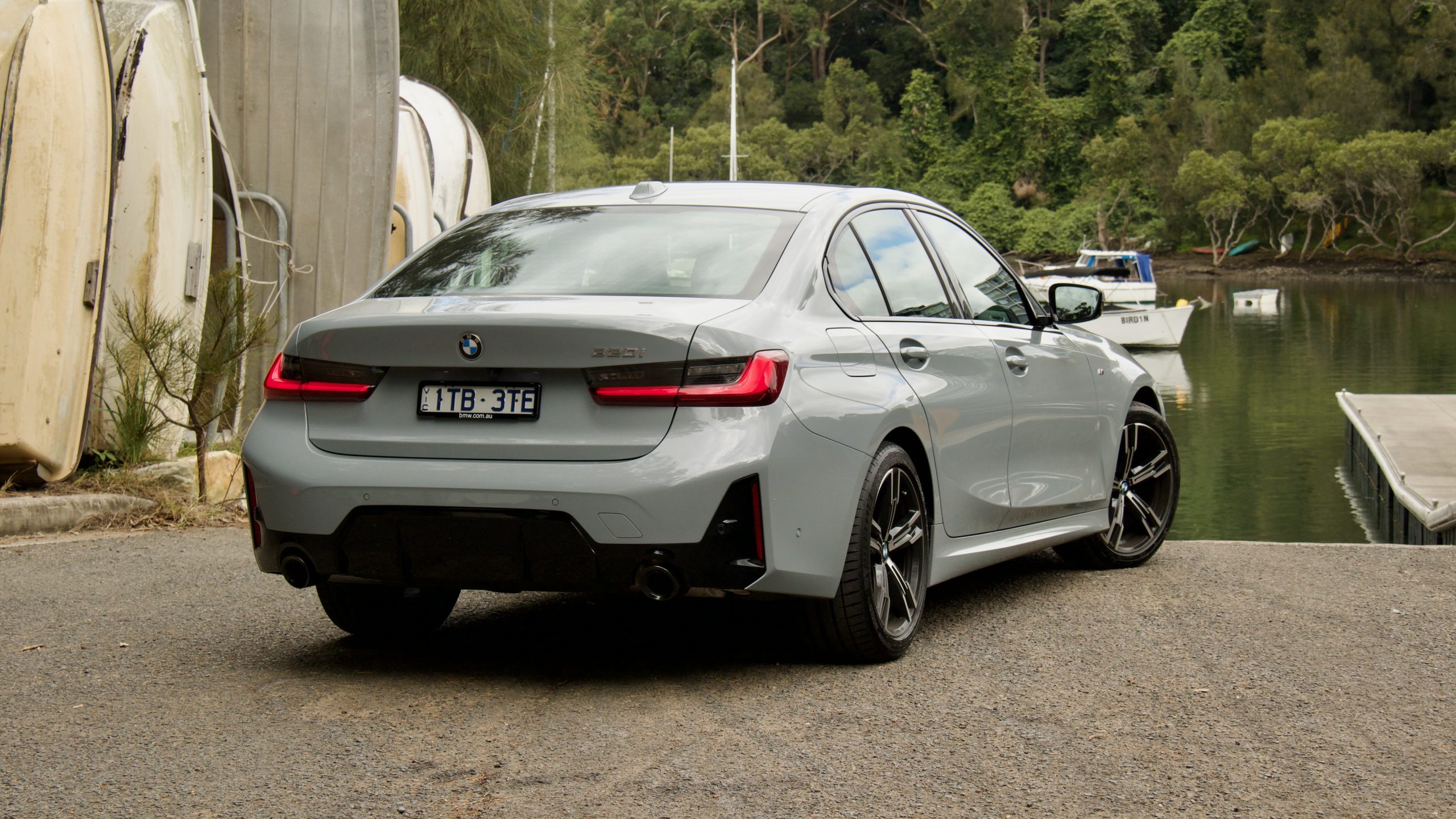
Is the 320i the spec to go for? Well, with recent price increases, it’s likely the only 3 Series that some will be able to afford and against less expensive, yet more powerful and better equipped rivals. Buyers of the 320i shouldn’t feel shortchanged because it’s definitely more than enough 3 Series for those after an executive car which exudes street cred. The 3 Series is an automotive icon and even in 320i form, continues to offer a lot to a lot of people.
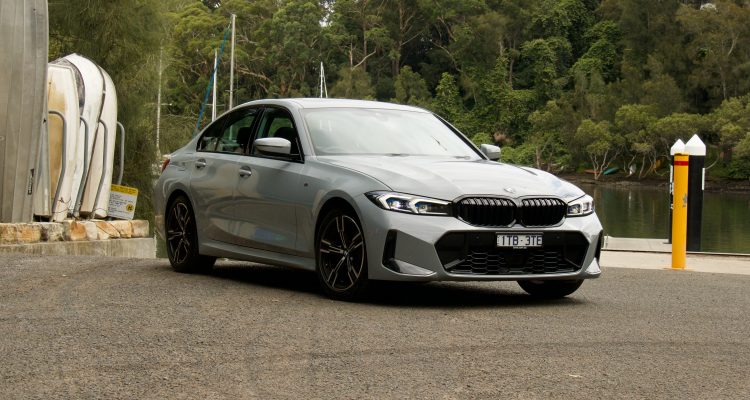
Leave a Reply